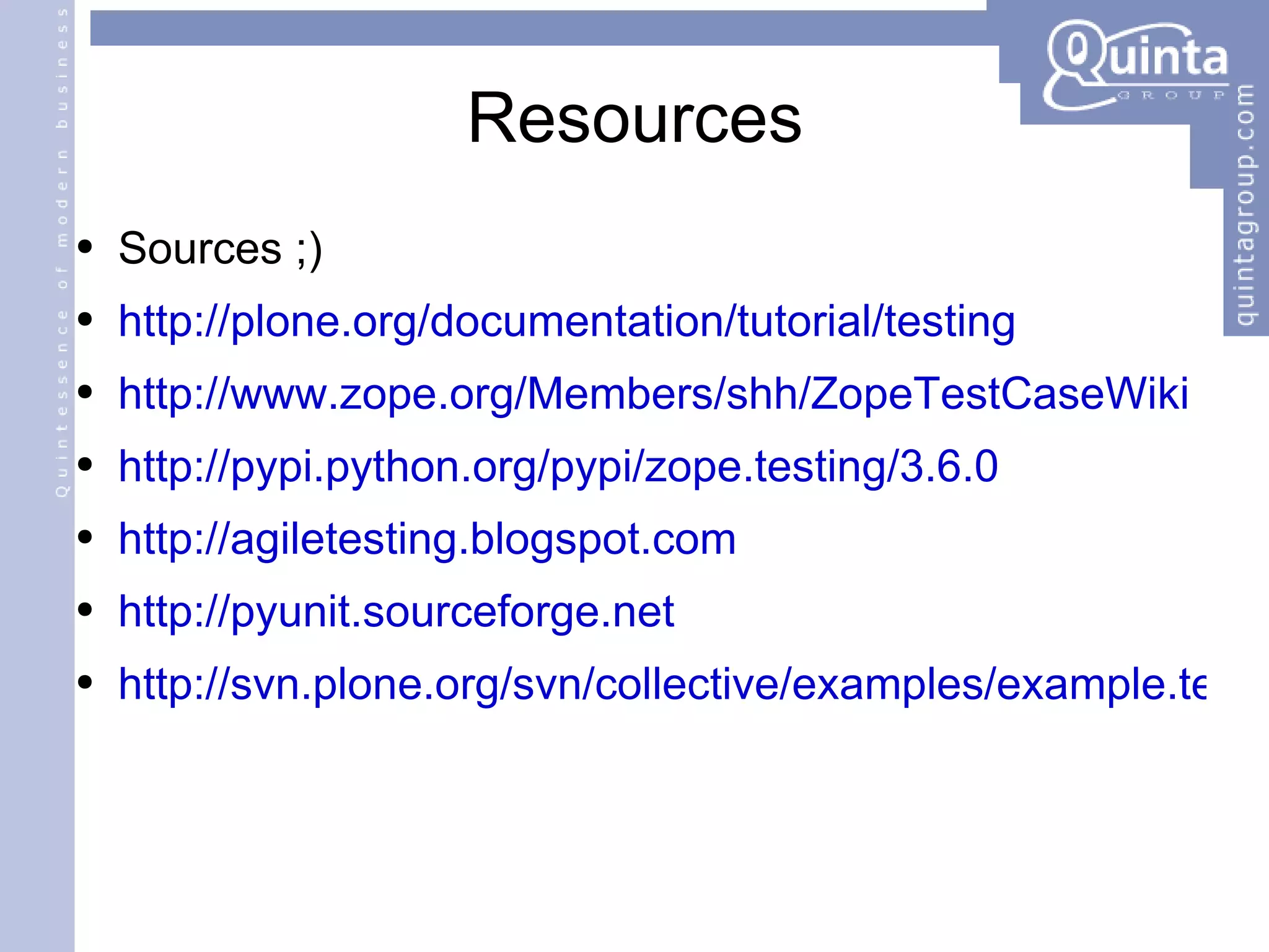The document discusses different types of testing including unit tests, integration tests, and functional tests. It provides an overview of the unittest, doctest, zope.testing, ZopeTestCase, PortalTestCase, and PloneTestCase frameworks for testing in Python, Zope, and Plone. Examples are given of how to write and organize tests using these frameworks.

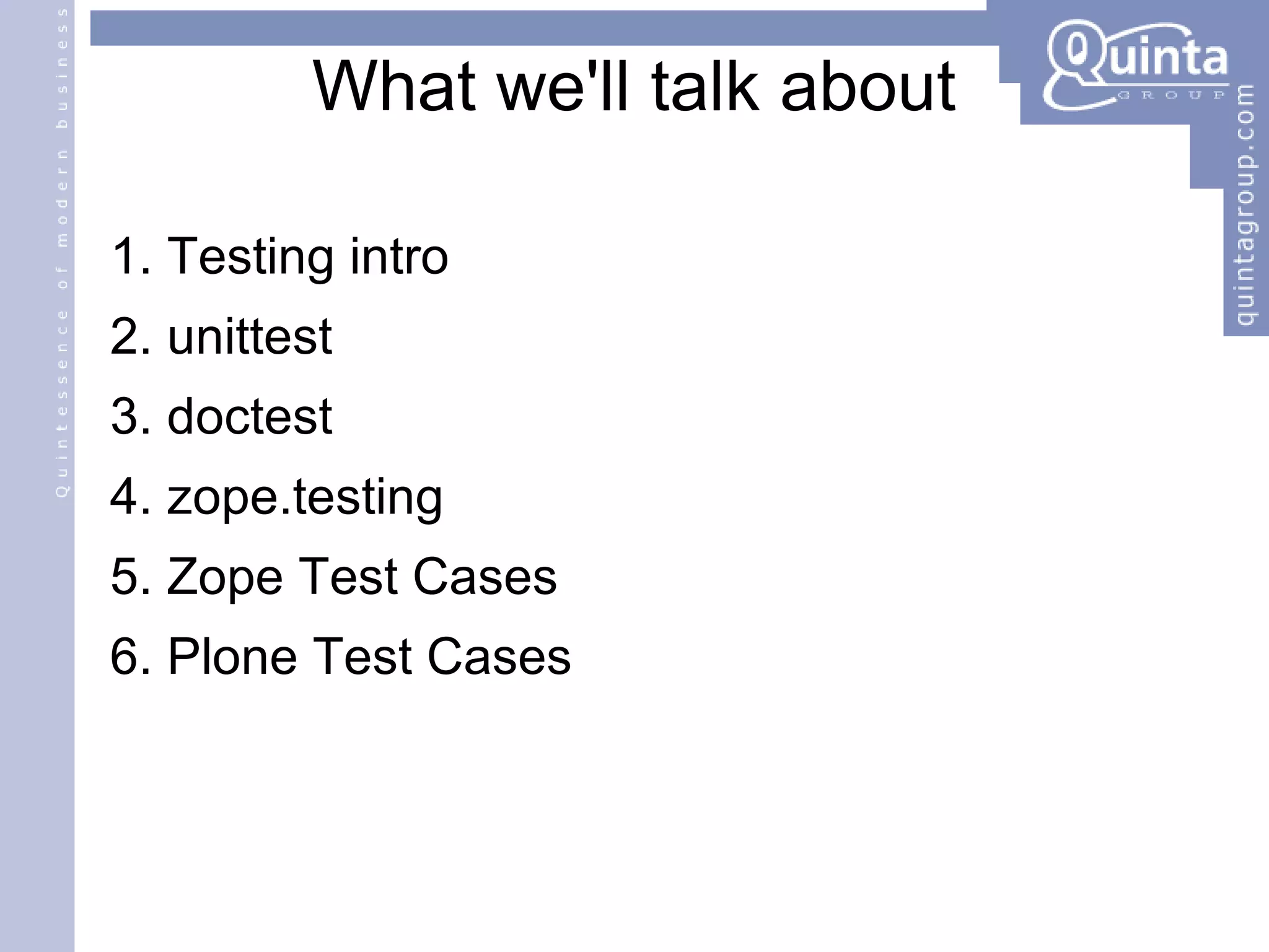
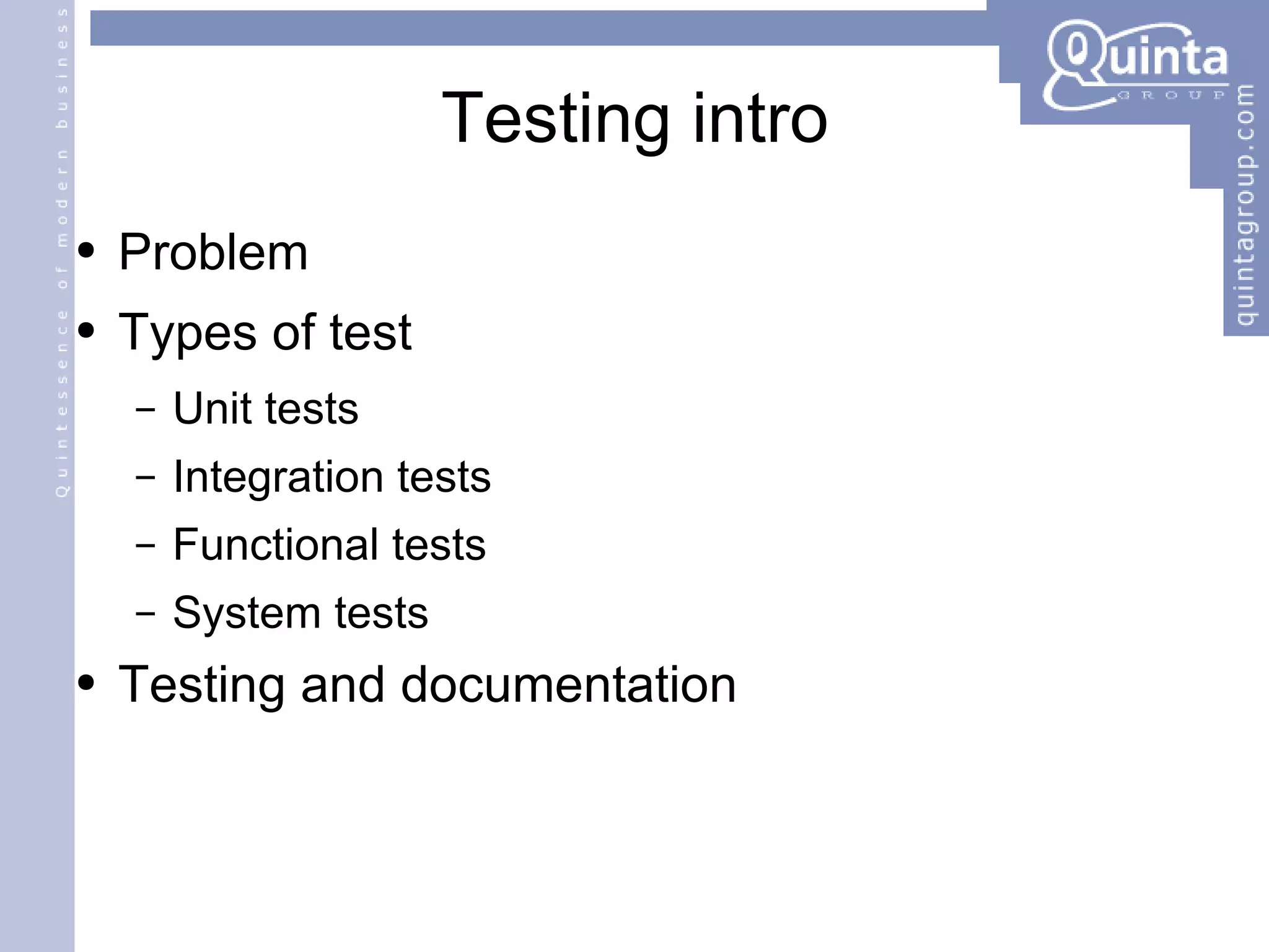

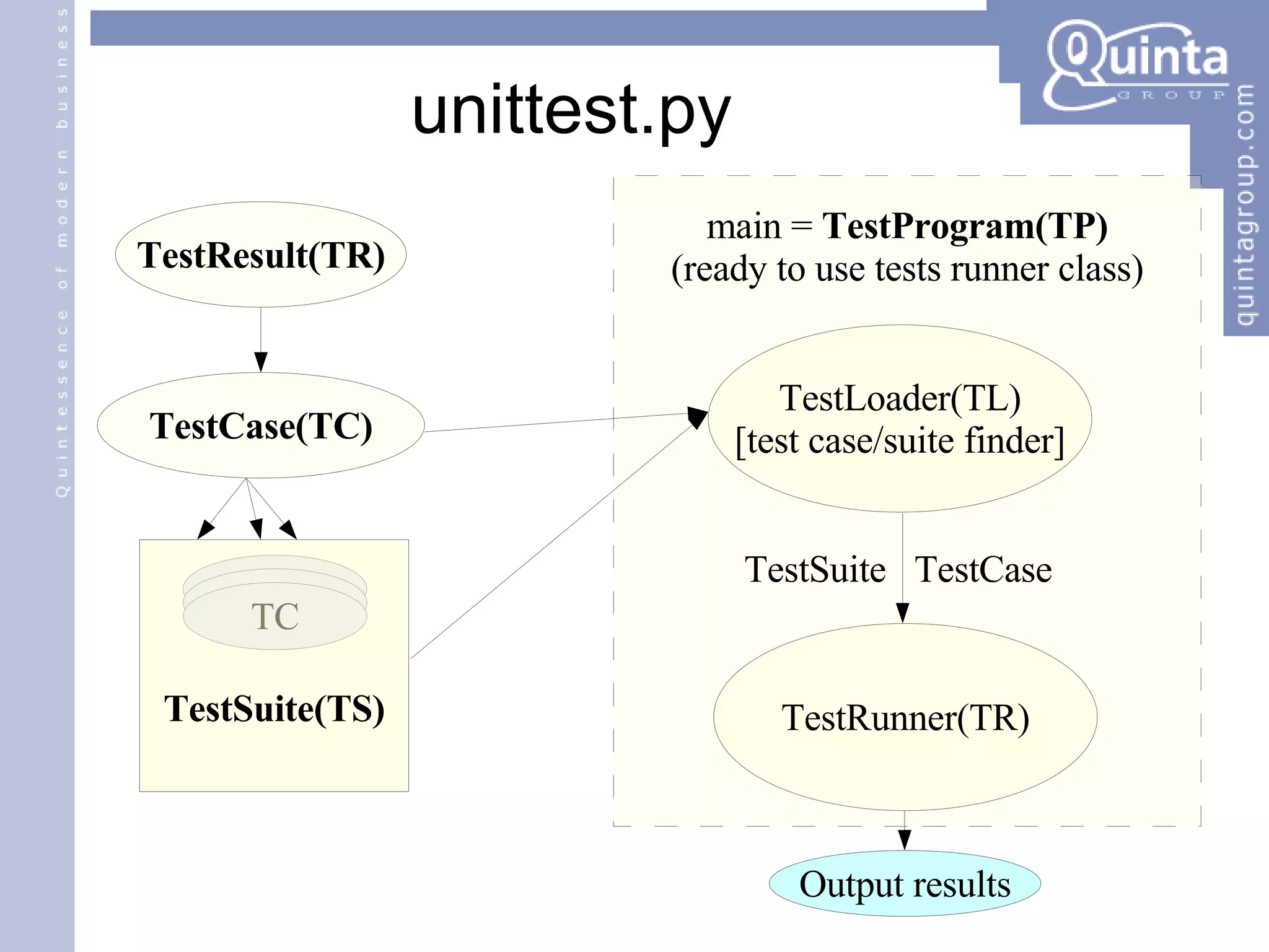
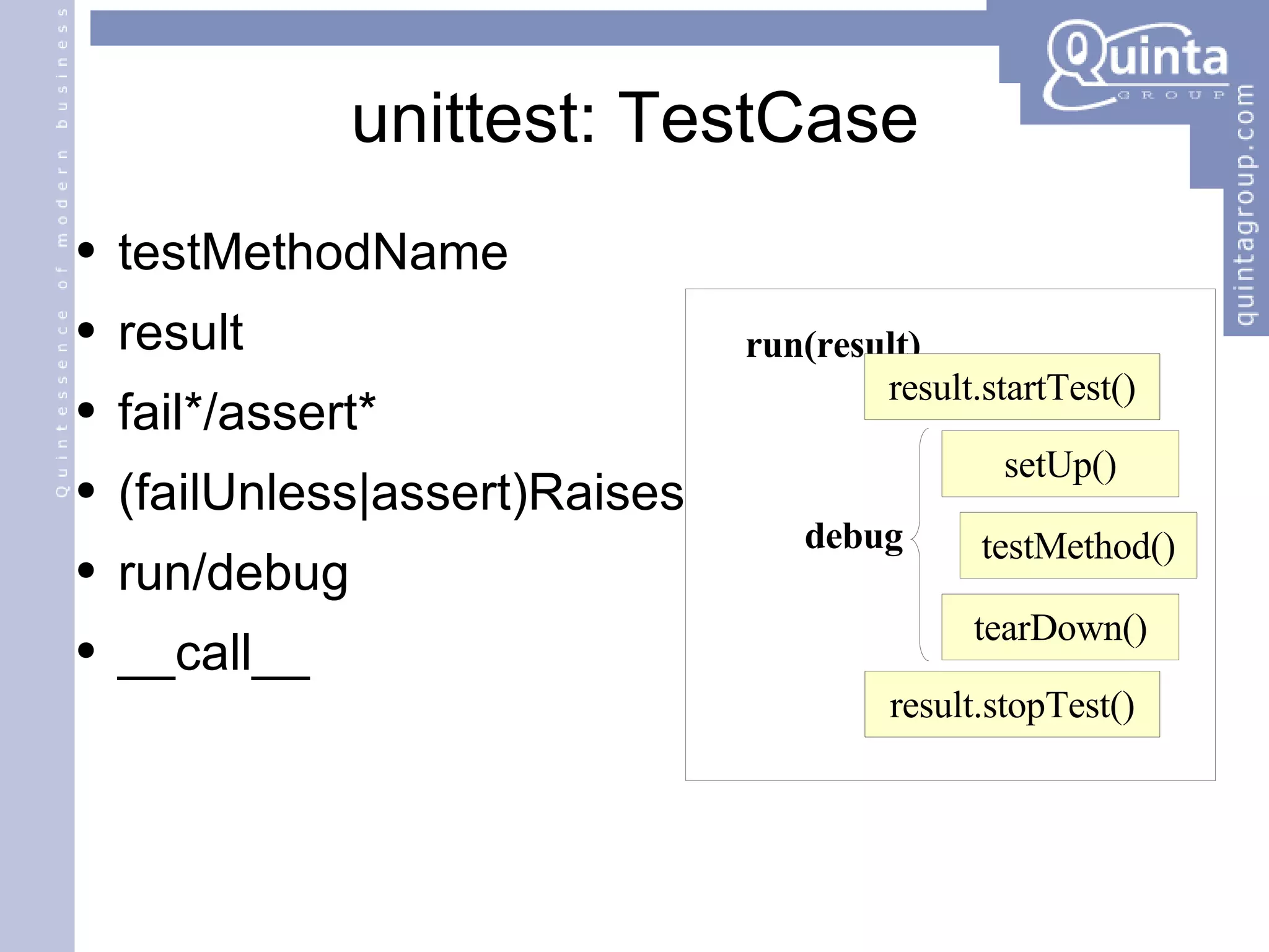
![unittest: module members TestSuite _test (addTest, addTests) run/debug (__call__) TestLoader define test method prefix [' test '] sort test method function [ cmp ] Methods : loadTestsFrom* [TestCase, Module, Name, Names] getTestCaseNames -> use test method prefix for find test methods -> used for build TestCase instances](https://image.slidesharecdn.com/testinginplonefinalpy-1219055797022118-9/75/Intro-to-Testing-in-Zope-Plone-7-2048.jpg)
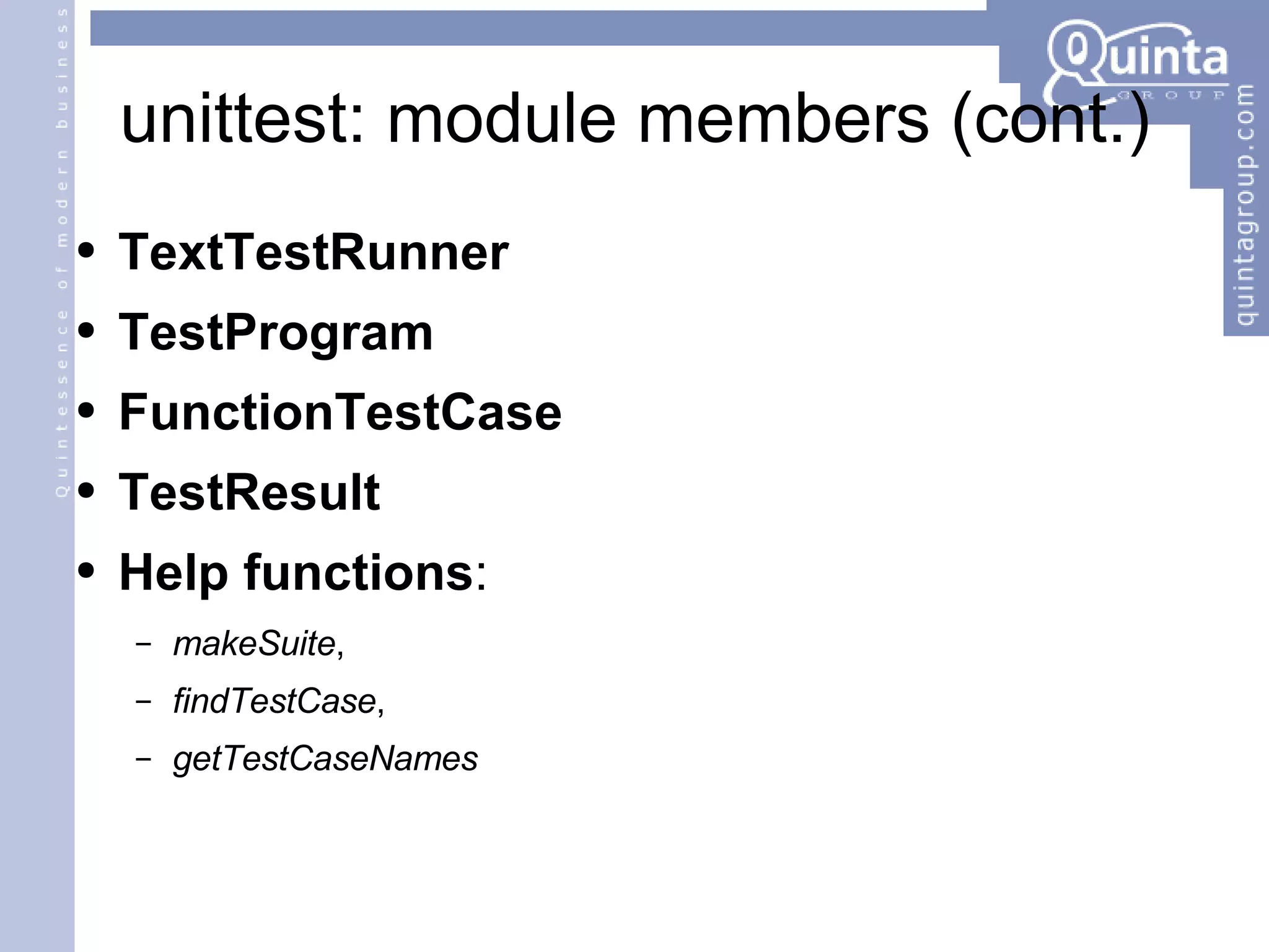
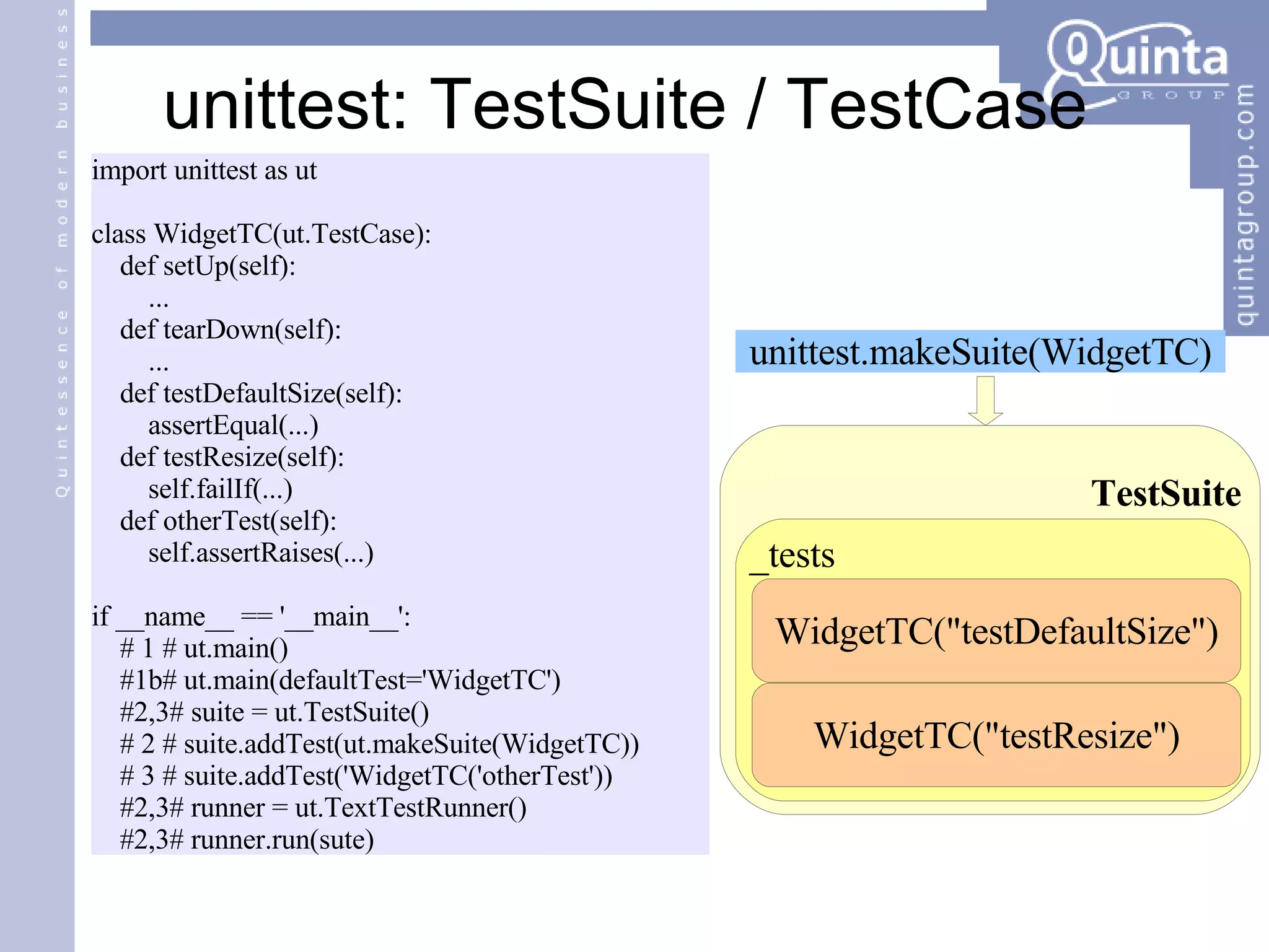

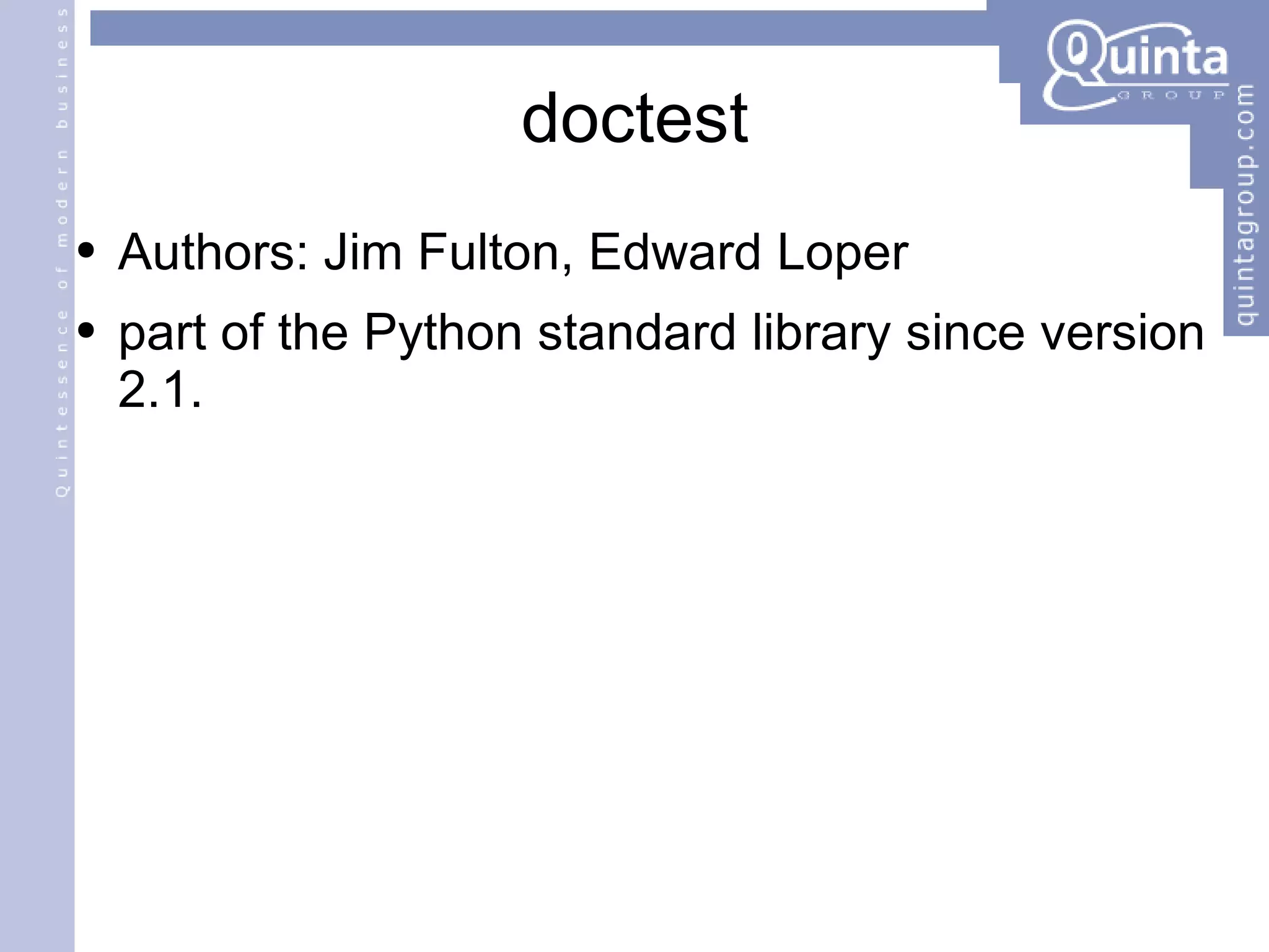
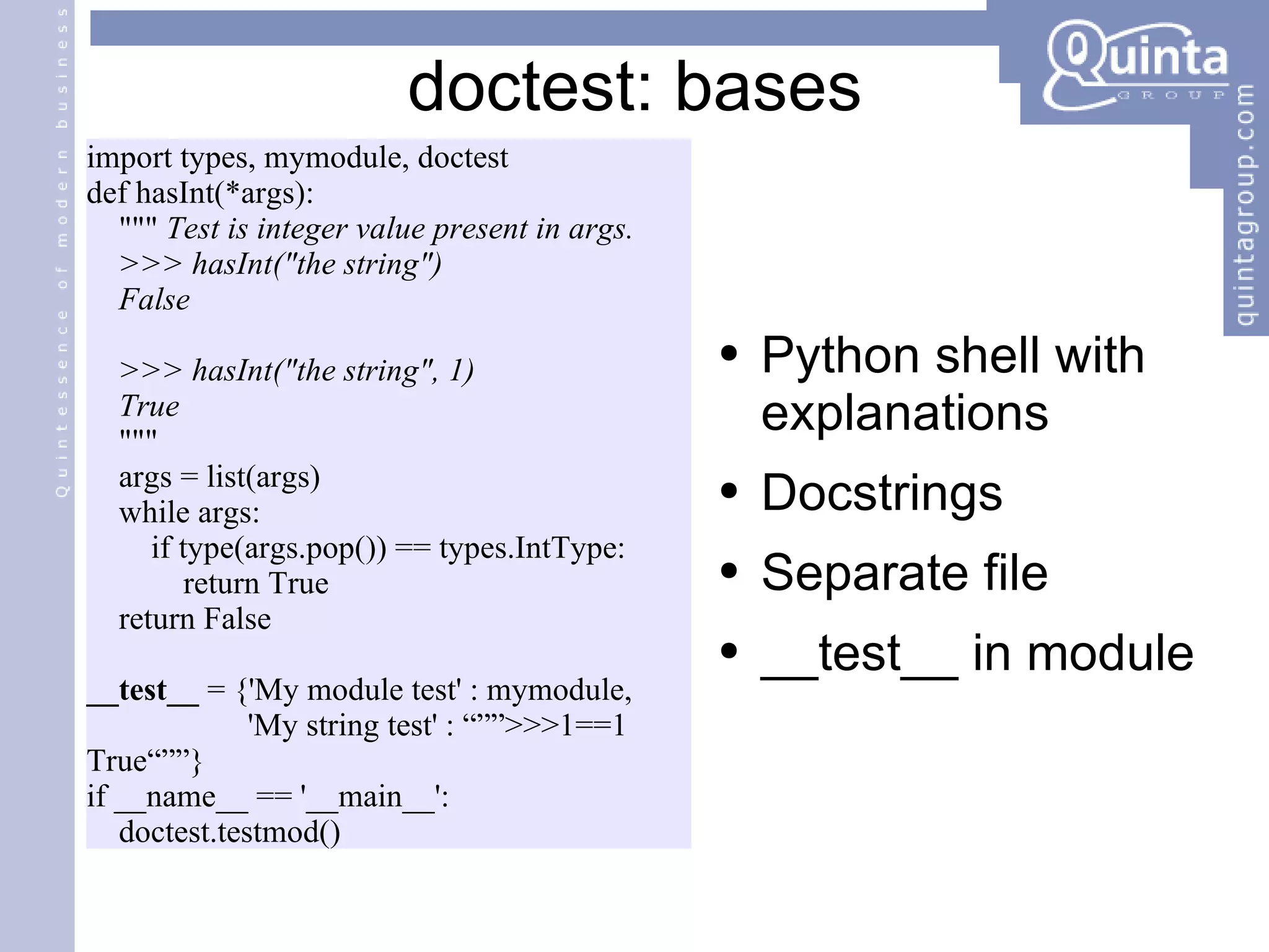
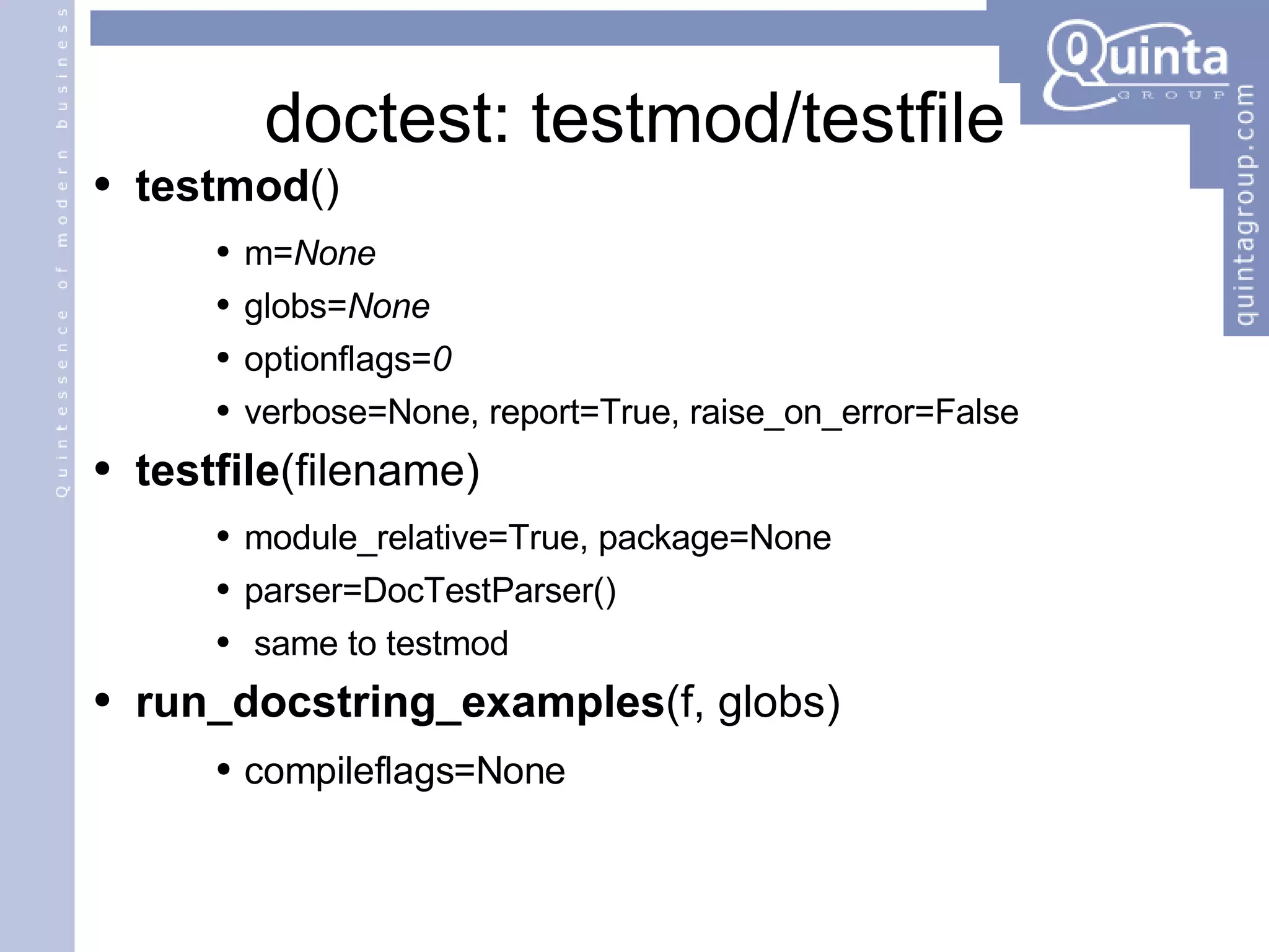
![doctest: Option flags COMPARISON_FLAGS DONT_ACCEPT_TRUE_FOR_1, DONT_ACCEPT_BLANKLINE, NORMALIZE_WHITESPACE, ELLIPSIS, IGNORE_EXCEPTION_DETAIL REPORTING_FLAGS REPORT_ONLY_FIRST_FAILURE, REPORT_*DIFF `want` strings markers BLANKLINE_MARKER='<BLANKLINE>', ELLIPSIS_MARKER = '...' Test ELLIPSIS option >>> range(100) #doctest:+ELLIPSIS [0, ..., 99] >>> range(100) [0, ..., 99] import doctest “”” >>> range(100) [0, ..., 99] “”” doctest.testmod( optionflags=doctest.ELLIPSIS)](https://image.slidesharecdn.com/testinginplonefinalpy-1219055797022118-9/75/Intro-to-Testing-in-Zope-Plone-14-2048.jpg)
![doctest: Unittest Support DocTestSuite Common options: module, globs, extraglobs, test_finder **options: setUp, tearDown, globs, optionflags DocFileTest(path) module_relative=True, package=None set_unittest_reportflags. Only reporting “”” >>> range(100)\n[0, ..., 99] “”” import doctest, unittest if __name__ == “__main__”: suite = unittest.TestSuite() testrunner = unittest.TextTestRunner() testrunner.run(doctest.DocTestSuite(optionflags=doctest.ELLIPSIS)) # testrunner.run(doctest.DocTestSuite())](https://image.slidesharecdn.com/testinginplonefinalpy-1219055797022118-9/75/Intro-to-Testing-in-Zope-Plone-15-2048.jpg)
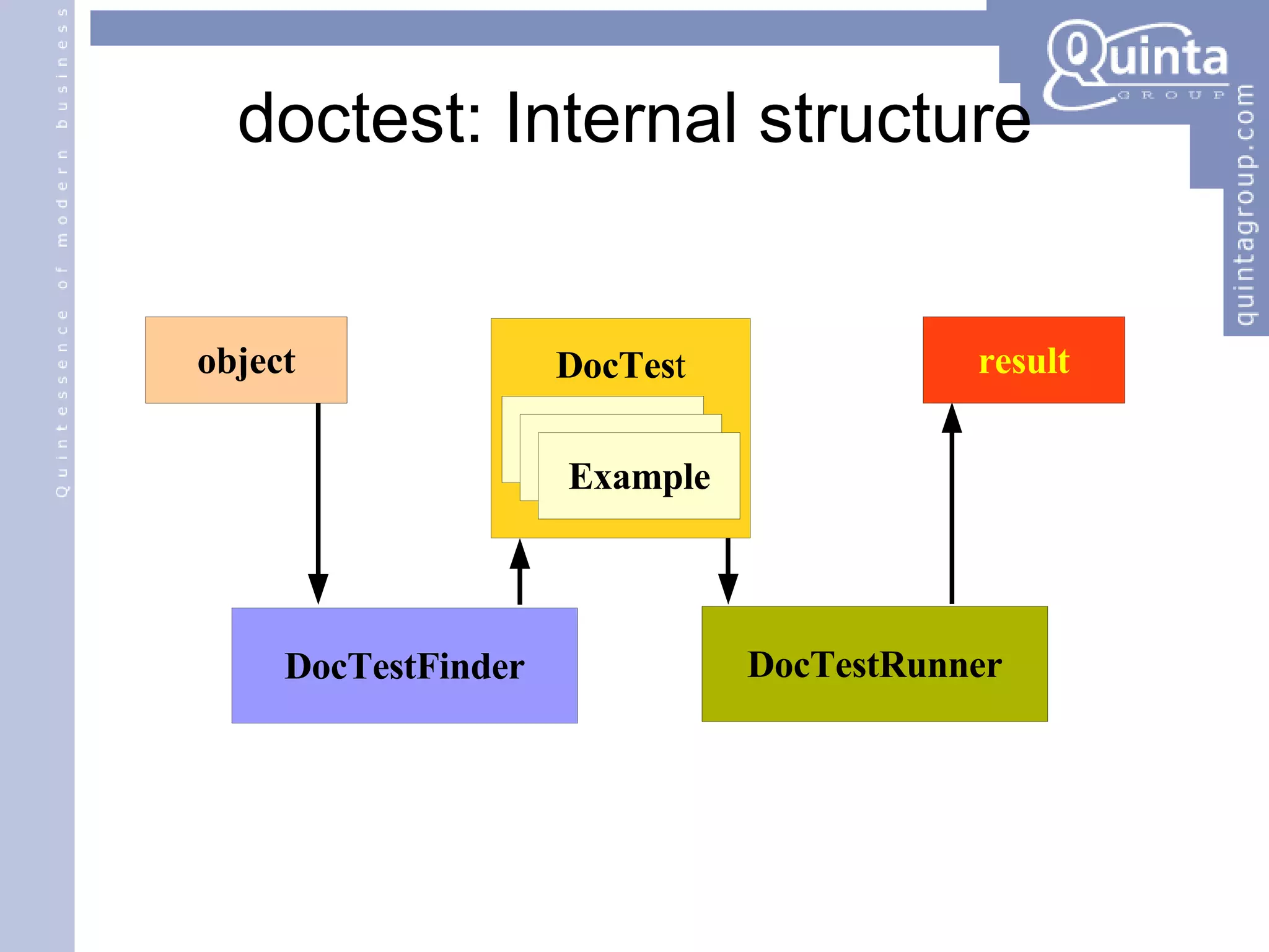
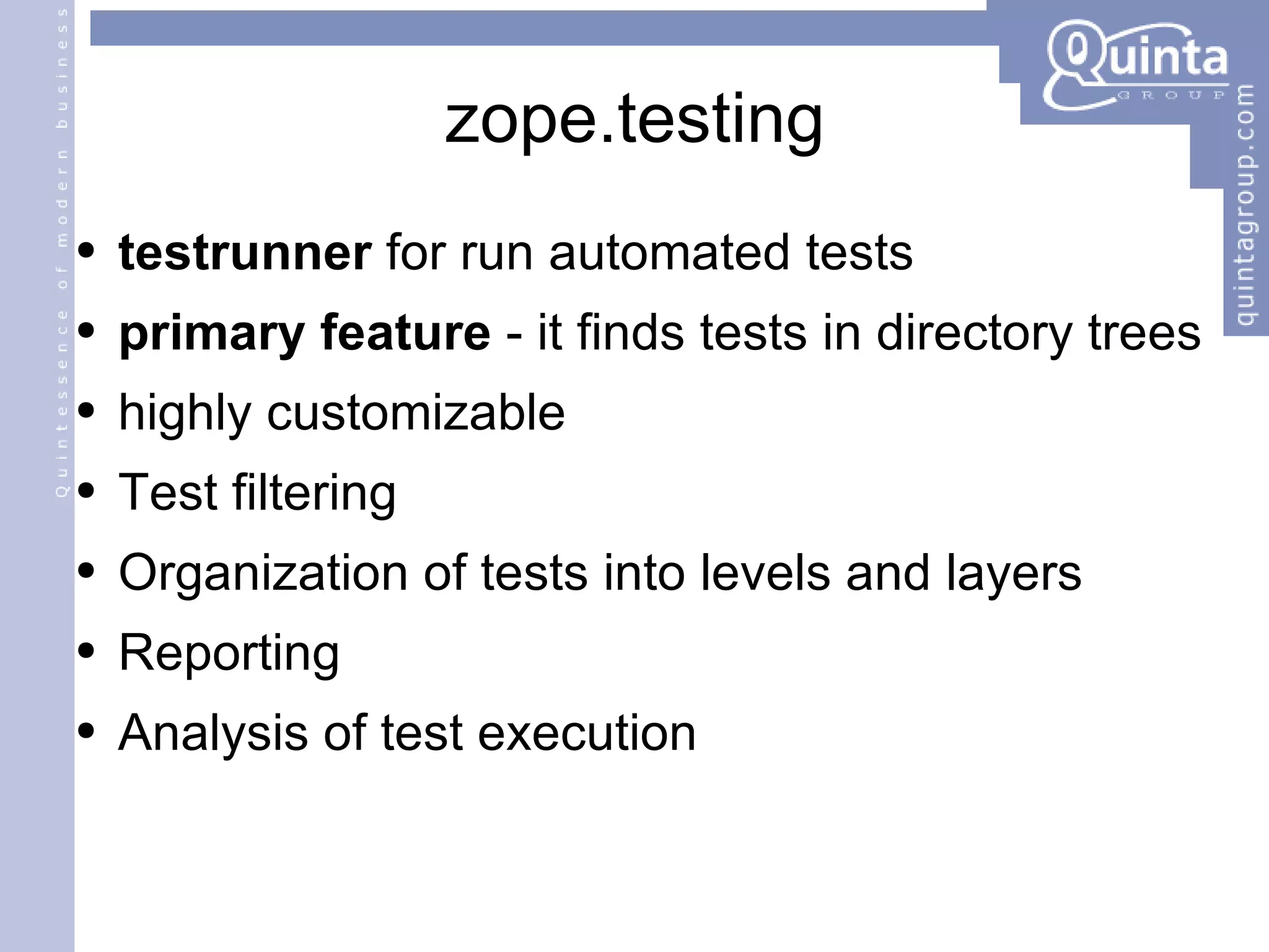
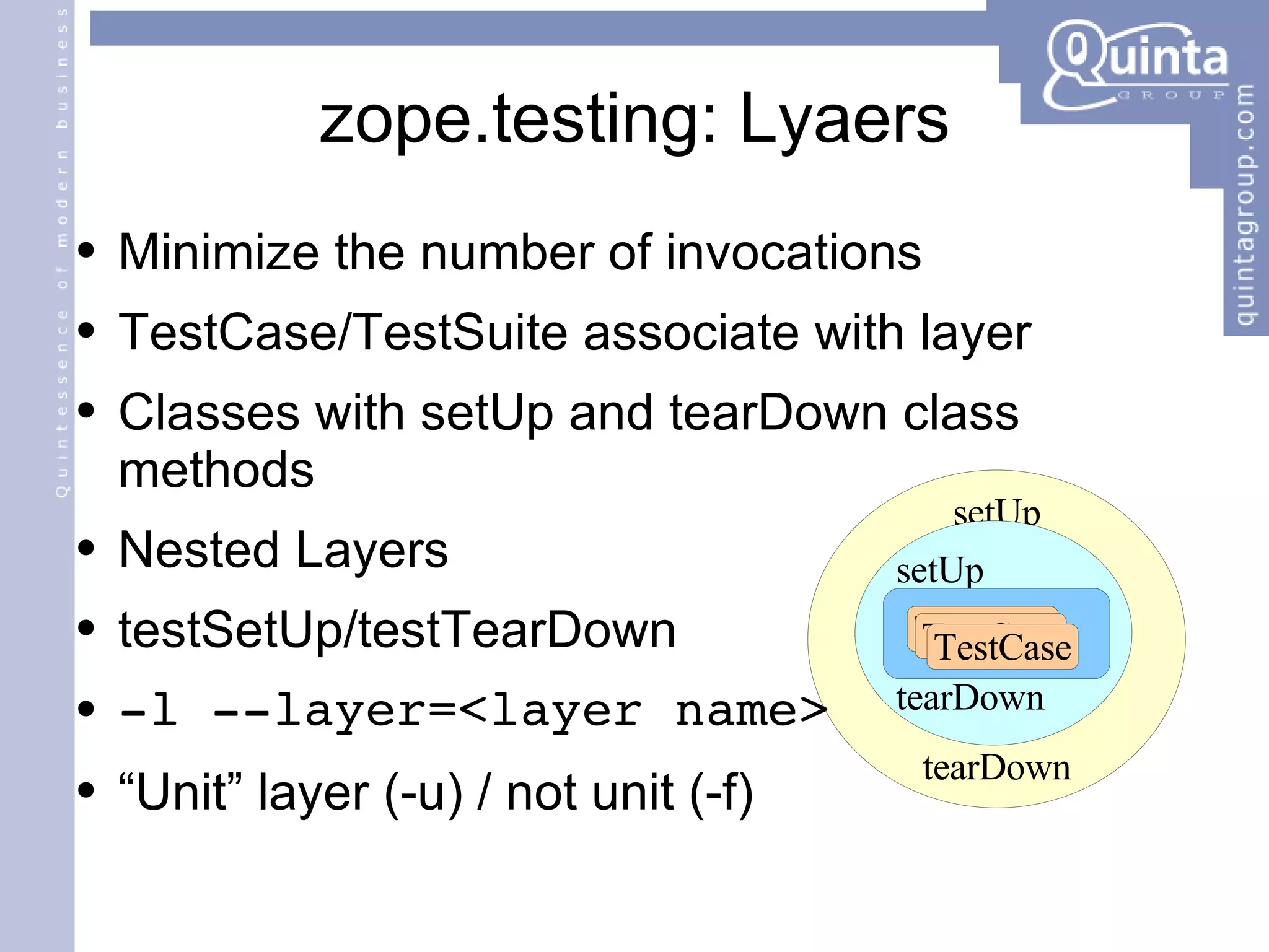
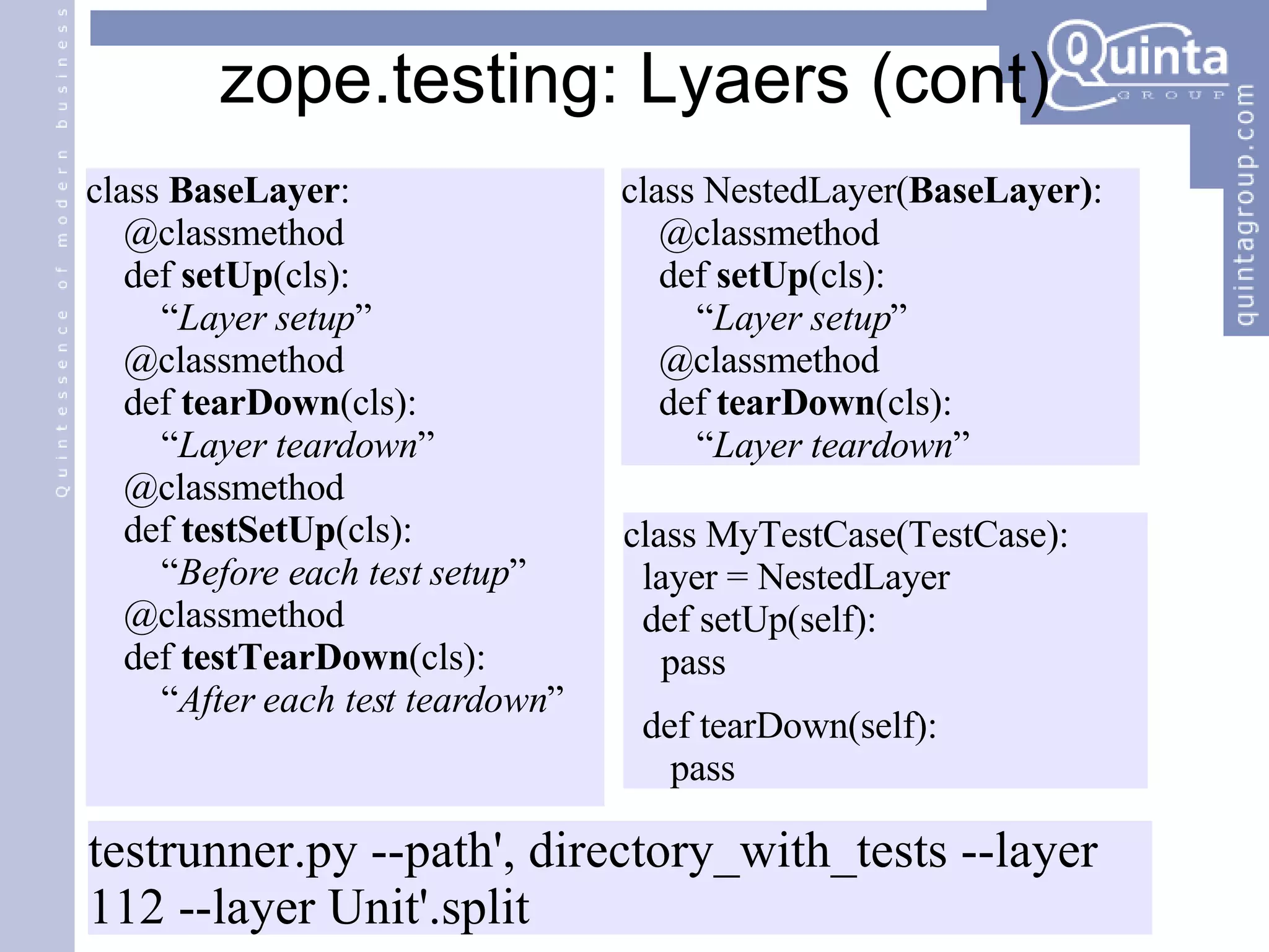
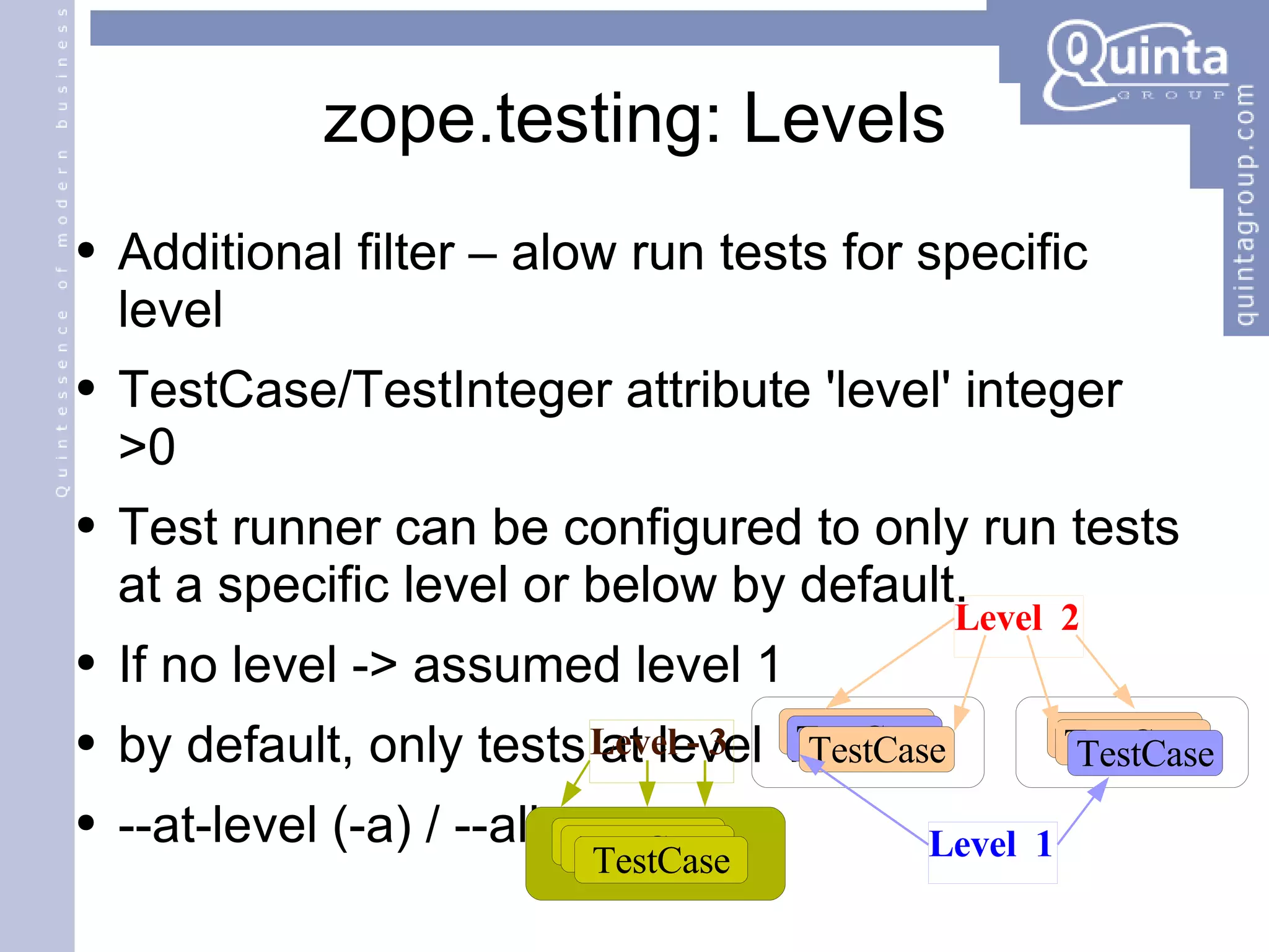
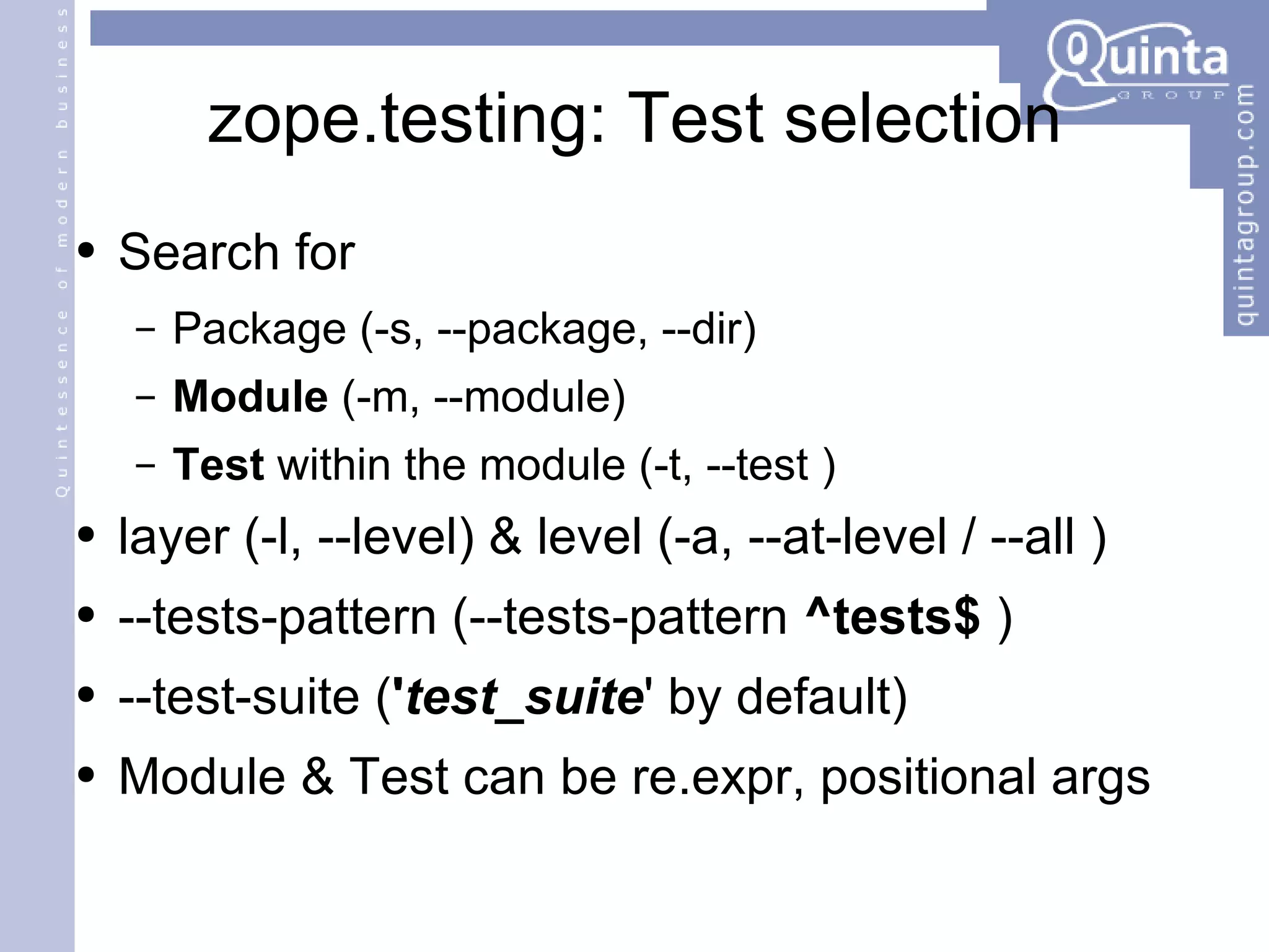
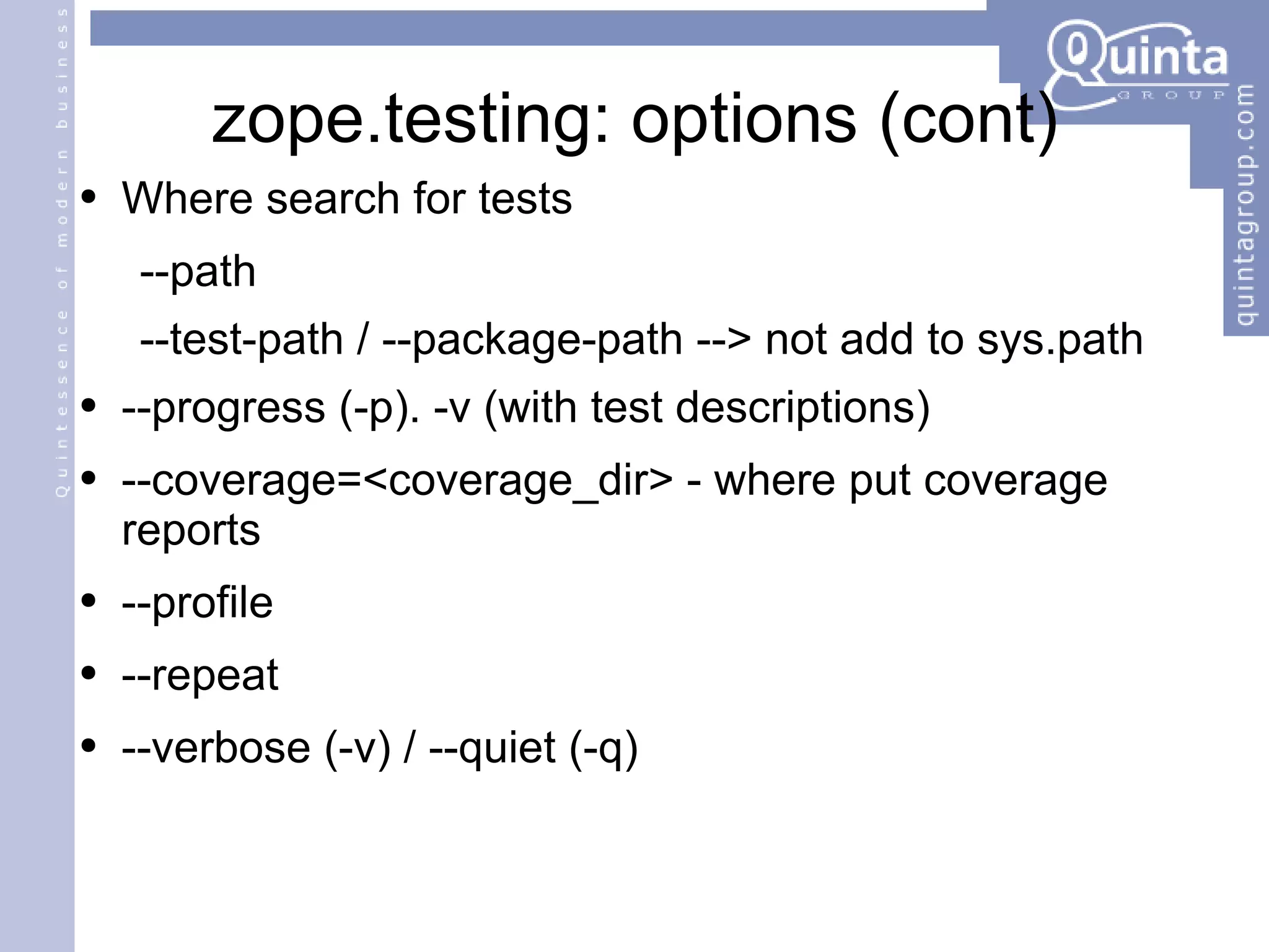
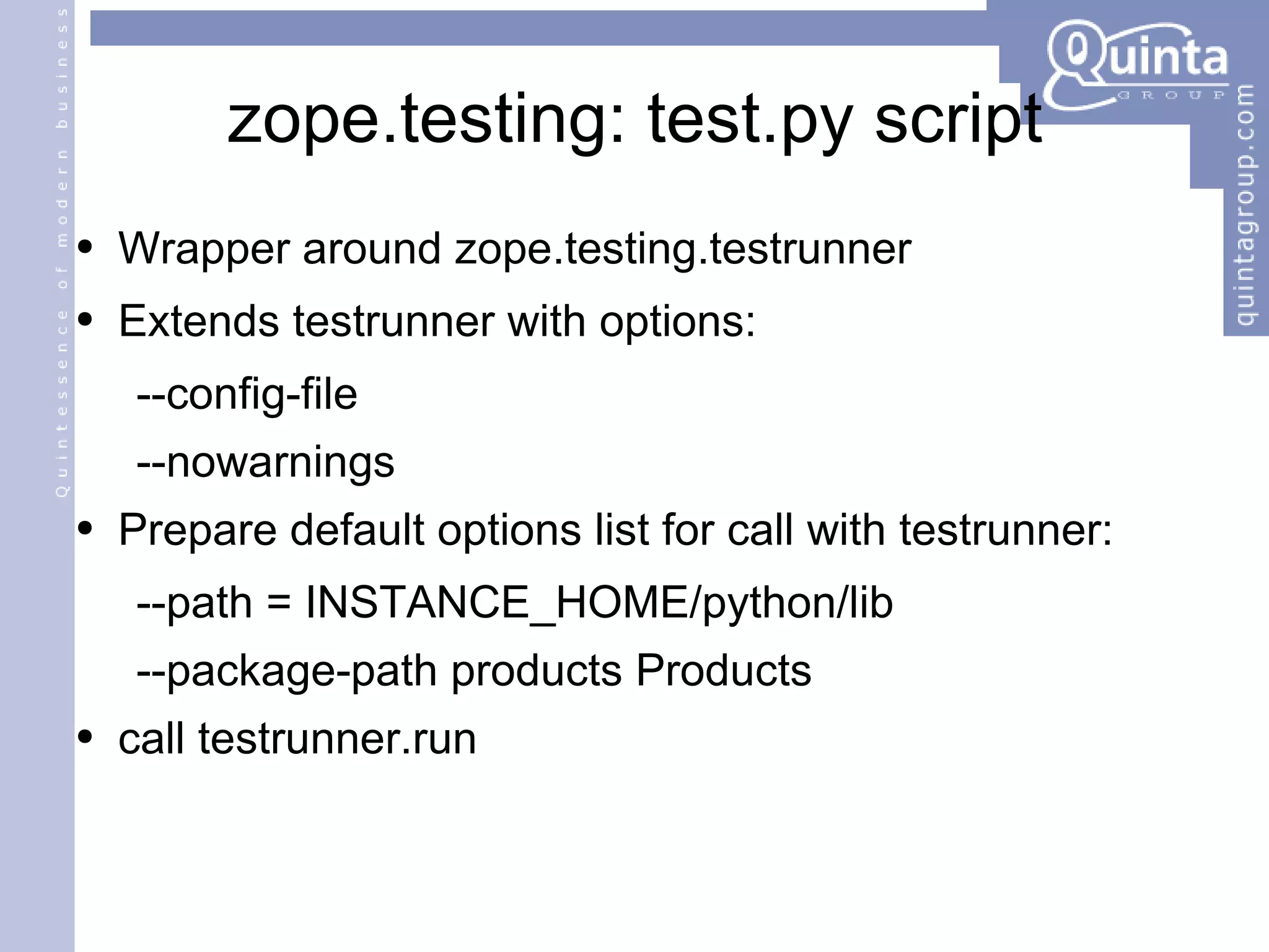
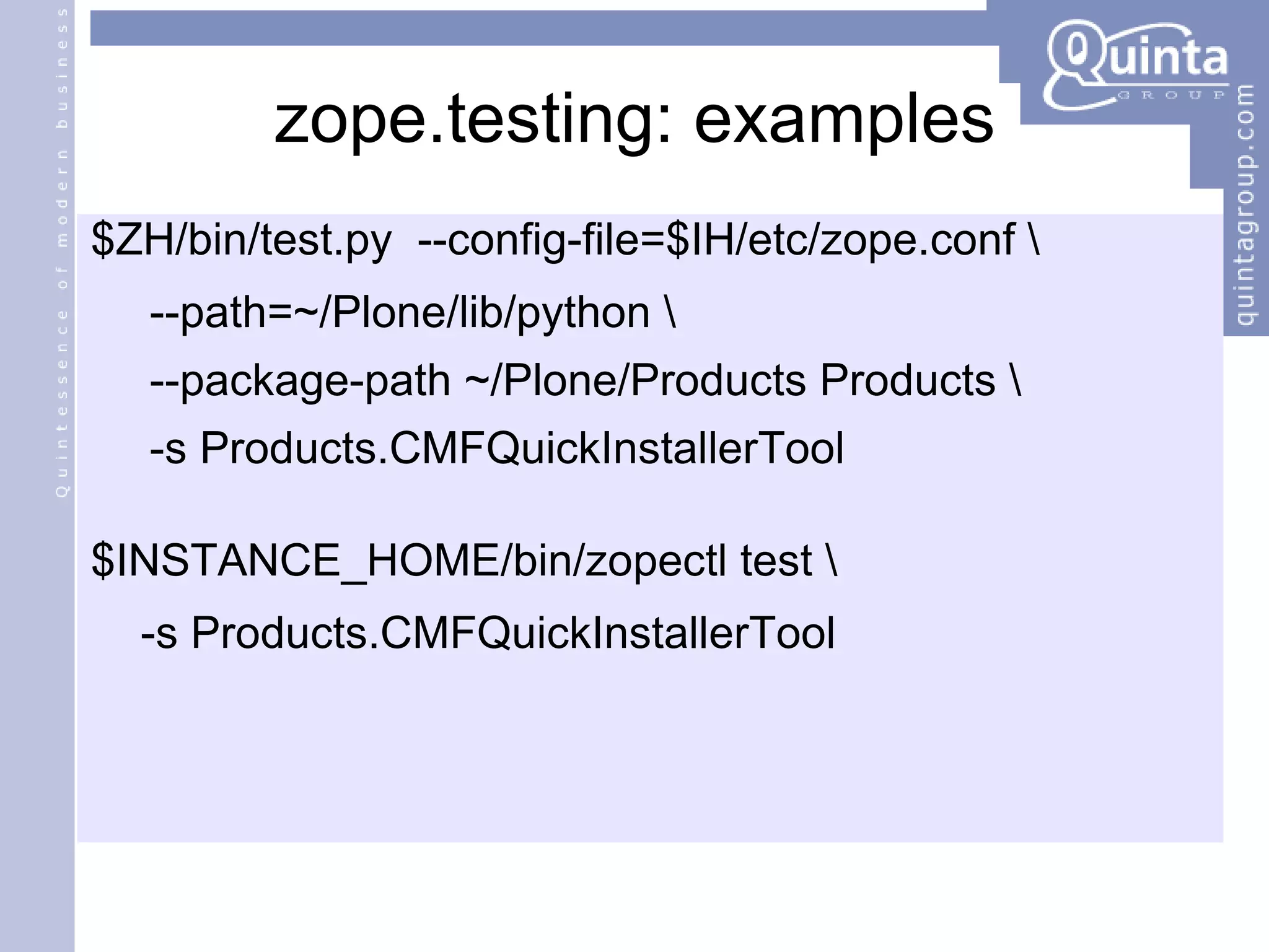
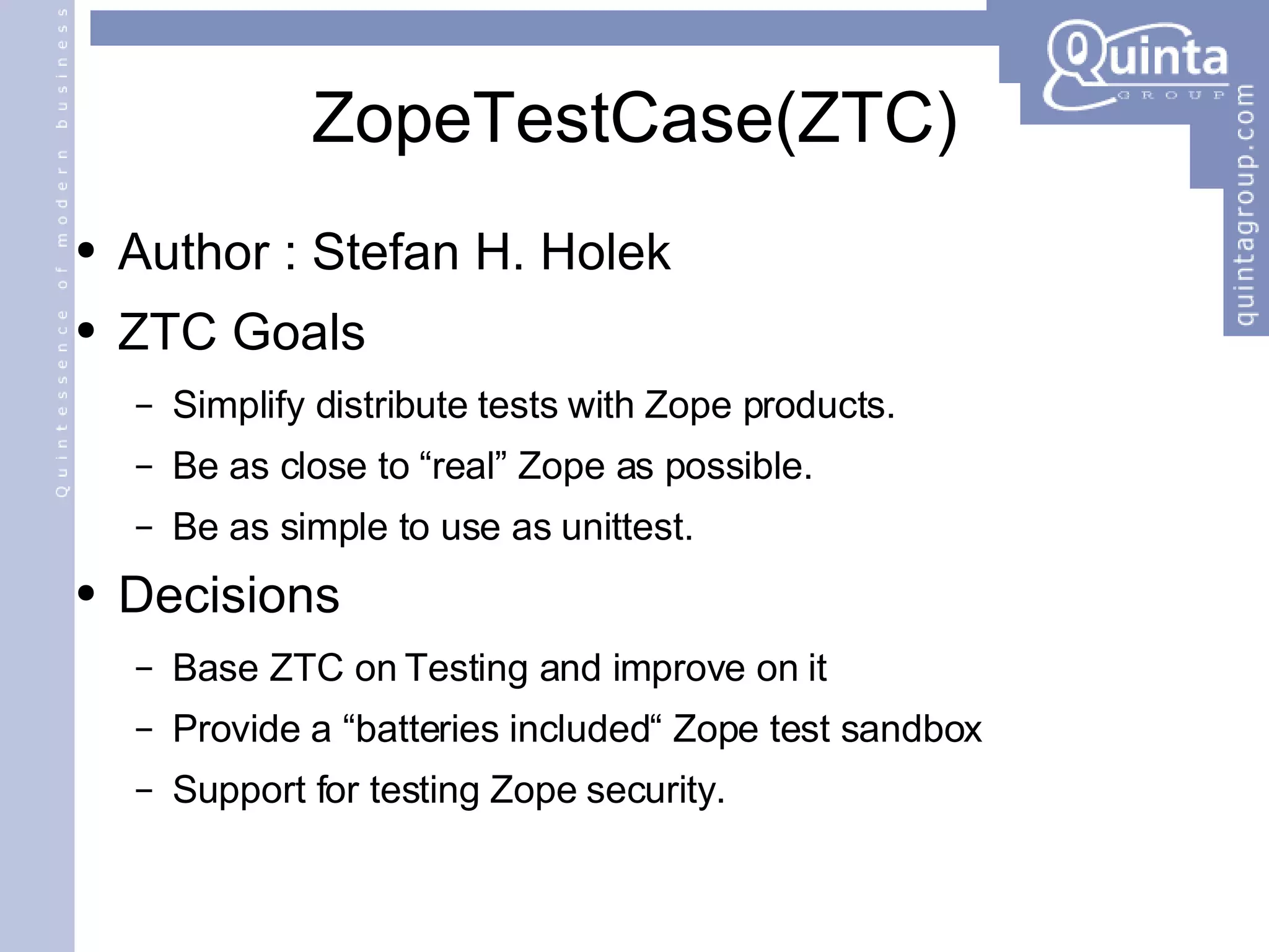
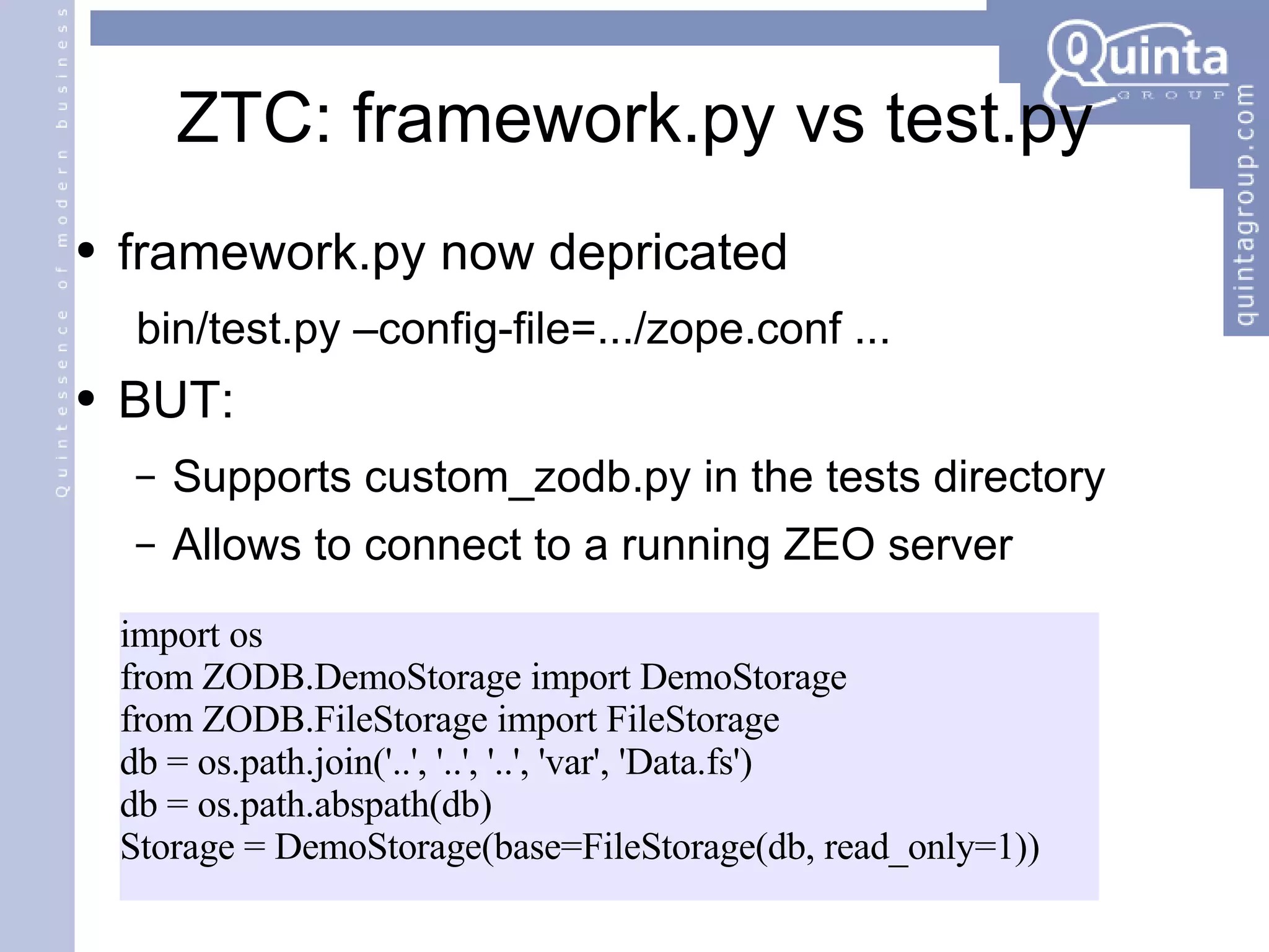
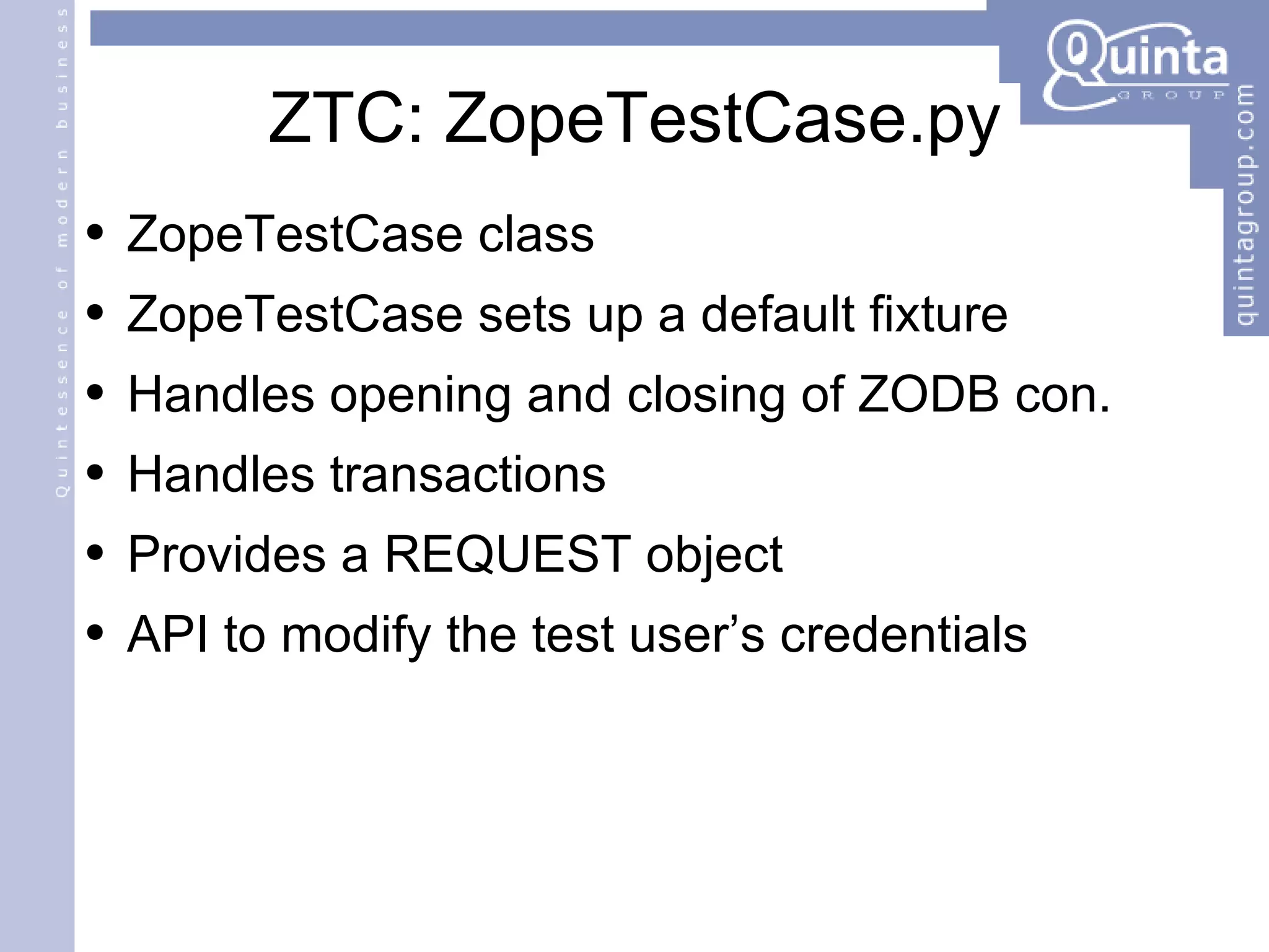
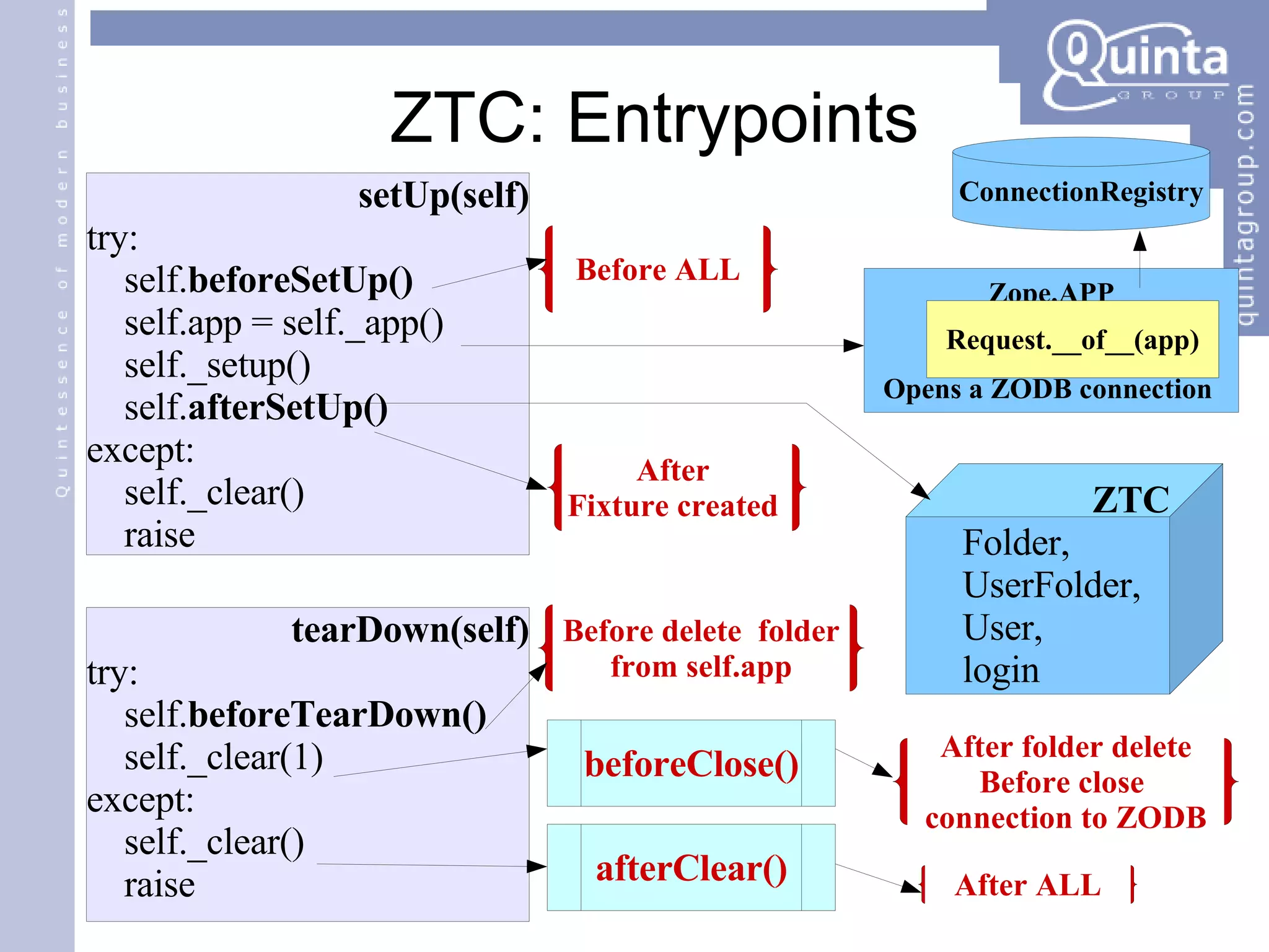
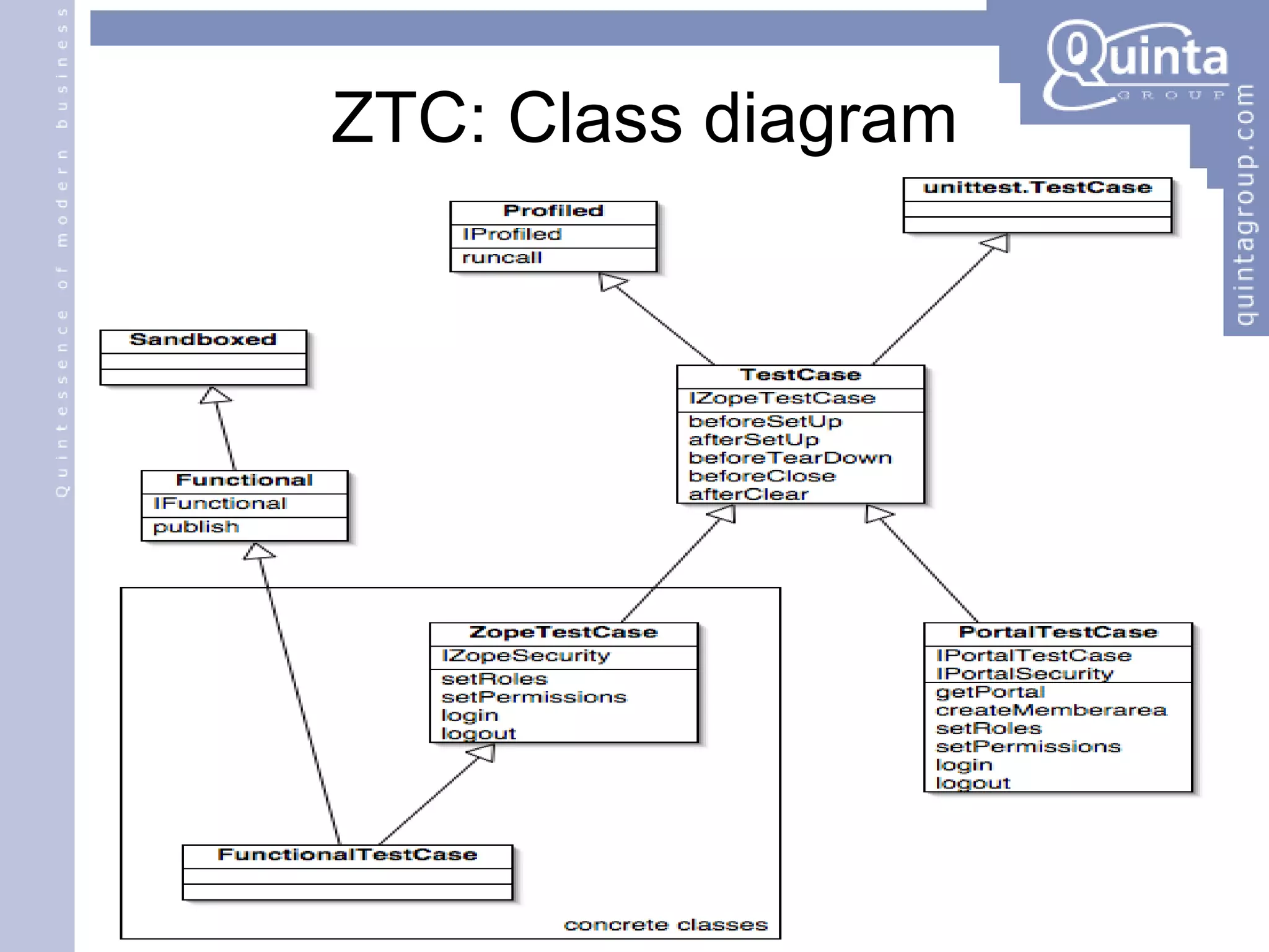
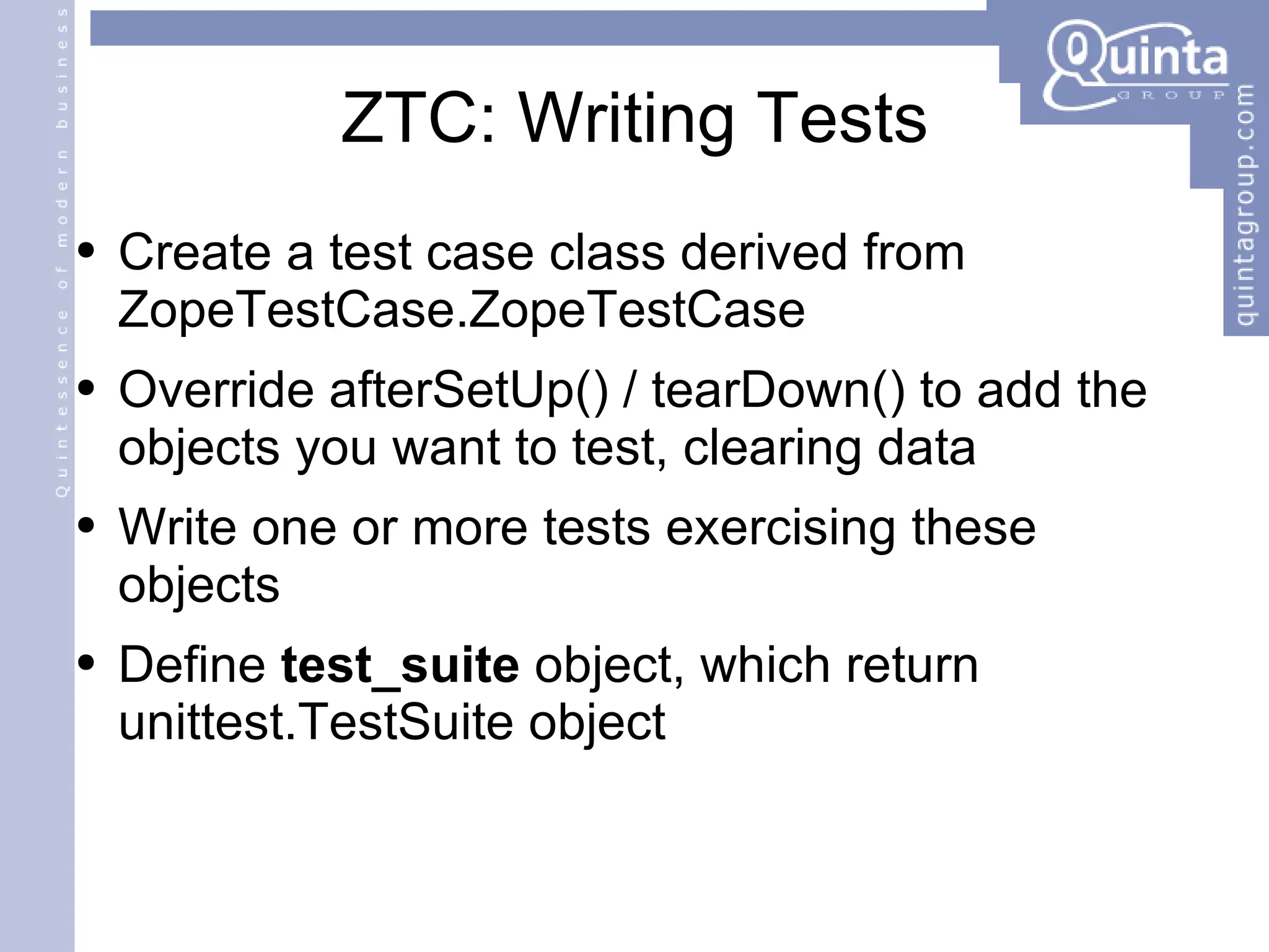
![ZTC: Example import unittest from Testing import ZopeTestCase ZopeTestCase.installProduct(’SomeProduct’) class MyTest(ZopeTestCase.ZopeTestCase): def afterSetUp(self): self.folder.addDTMLMethod(’foo’) def testFoo(self): assert hasattr(self.folder, ’foo’) def test_suite(): return unittest.TestSuite( [unittest.makeSuite(MyTest),] )](https://image.slidesharecdn.com/testinginplonefinalpy-1219055797022118-9/75/Intro-to-Testing-in-Zope-Plone-31-2048.jpg)
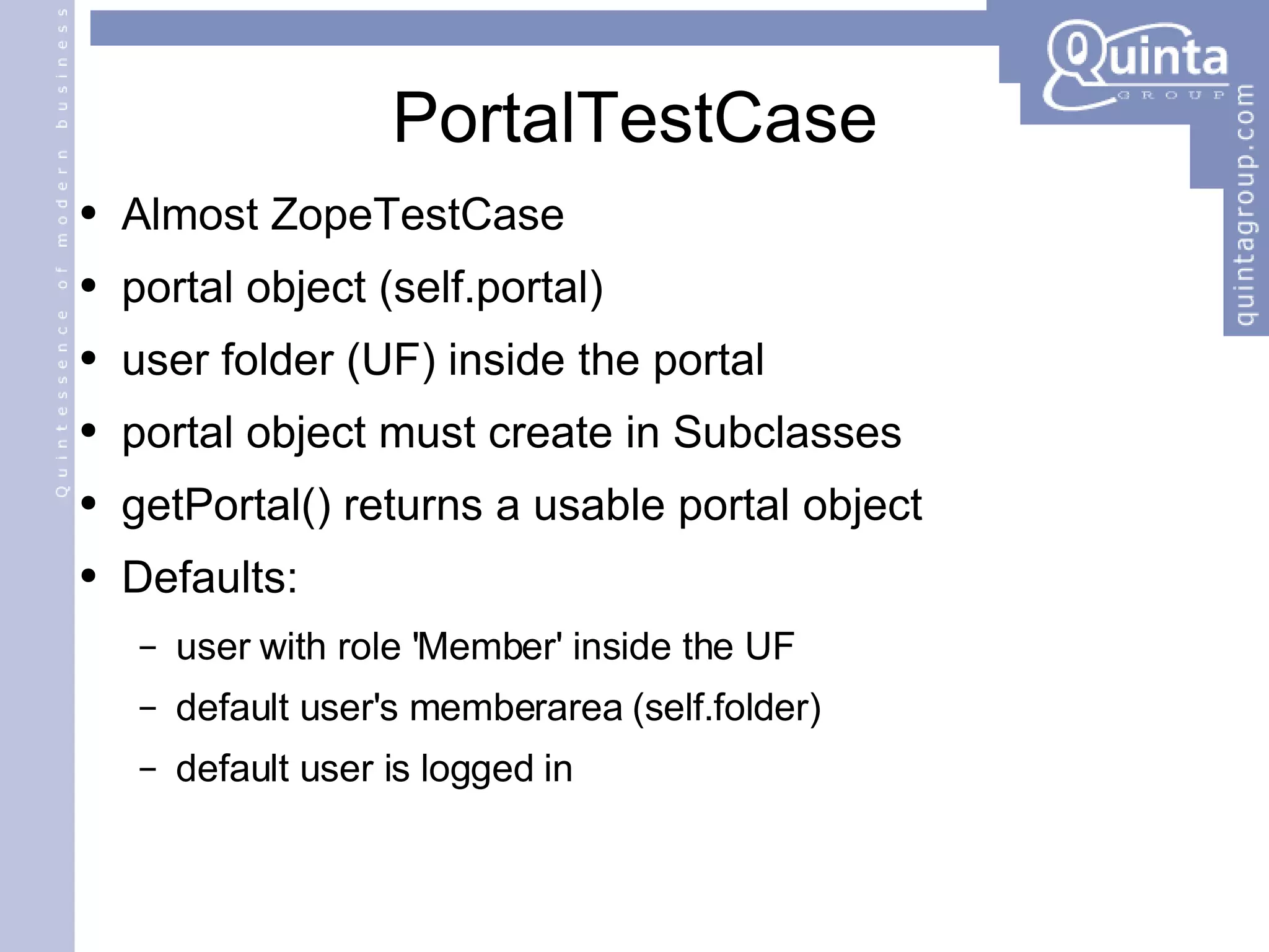
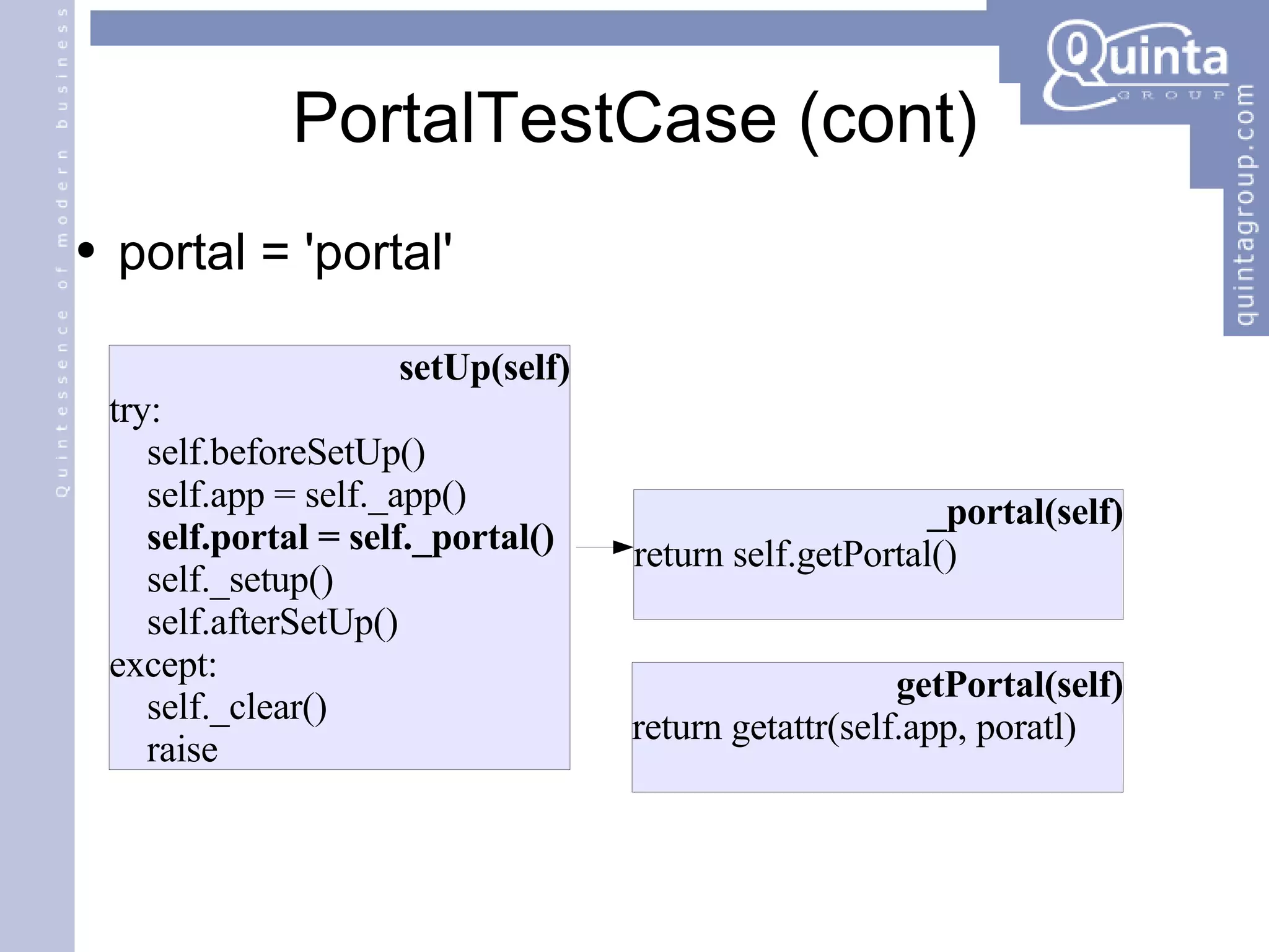
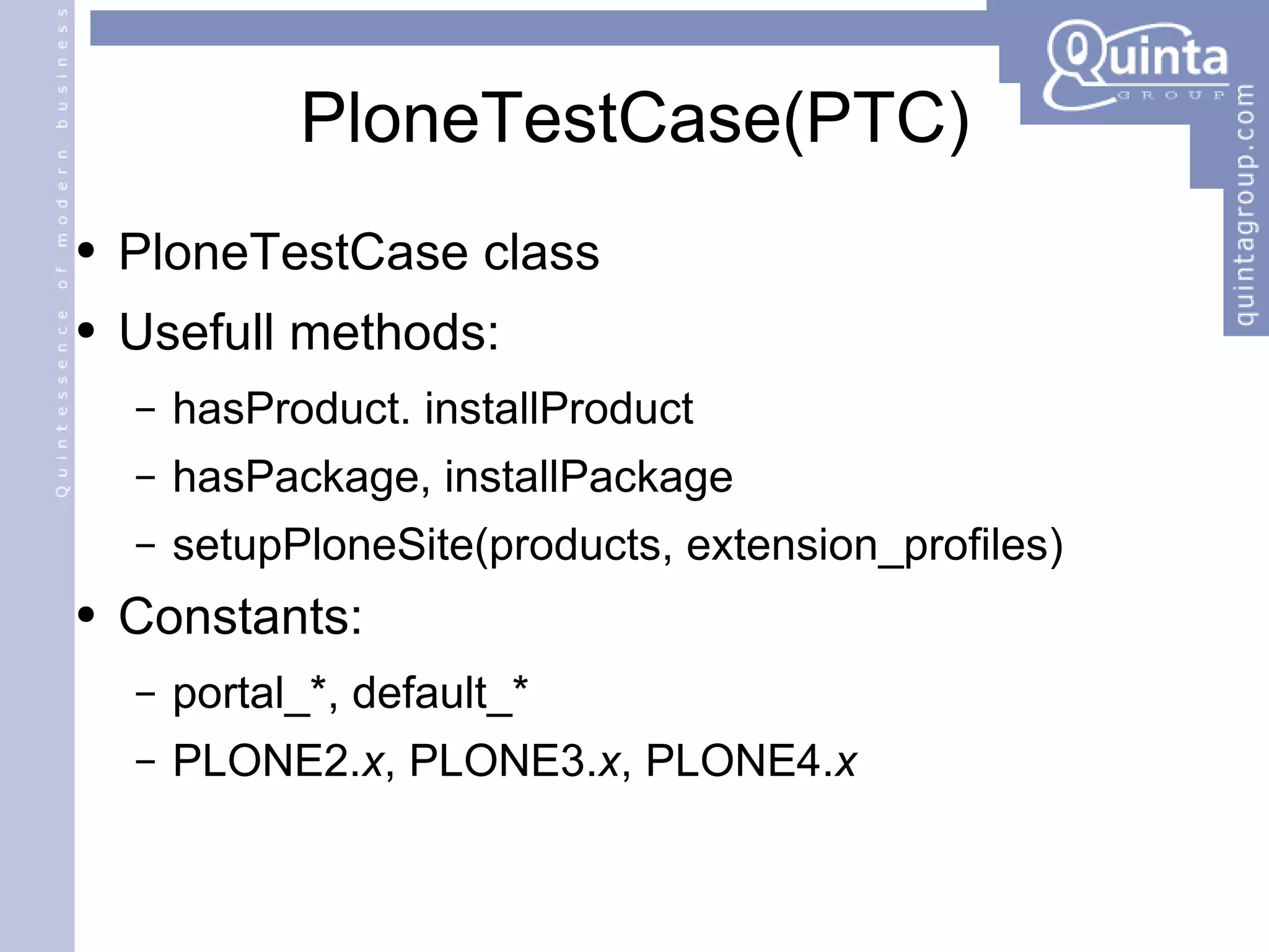
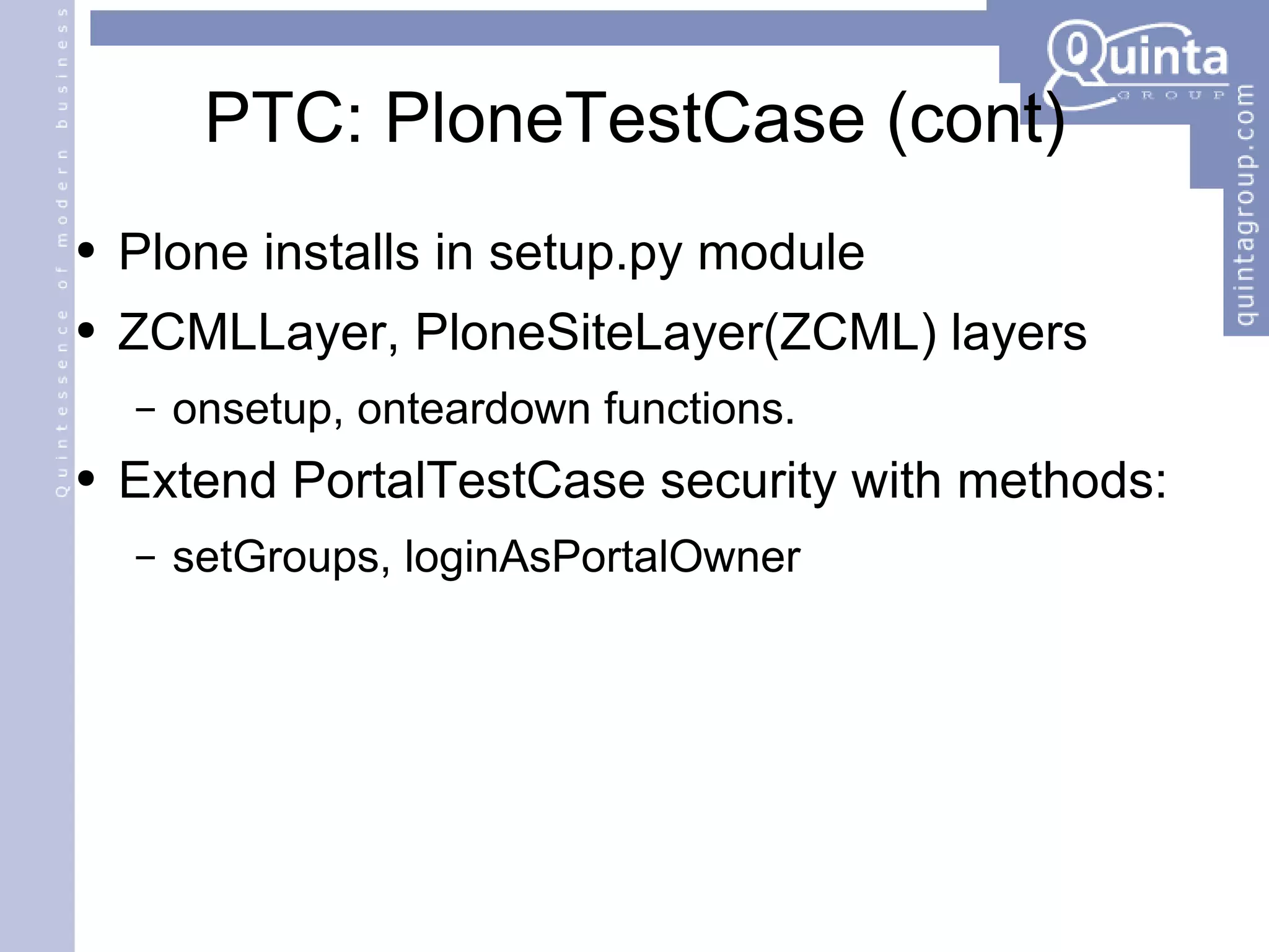
![PTC: PloneTestCase example import os, sys if __name__ == '__main__': execfile(os.path.join(sys.path[0], 'framework.py')) from Products.PloneTestCase import PloneTestCase PloneTestCase.setupPloneSite() class TestDocument(PloneTestCase.PloneTestCase): def afterSetUp(self): ... def testAddDocument(self): self.failUnless(...) def test_suite(): ... return suite if __name__ == '__main__': framework()](https://image.slidesharecdn.com/testinginplonefinalpy-1219055797022118-9/75/Intro-to-Testing-in-Zope-Plone-36-2048.jpg)
